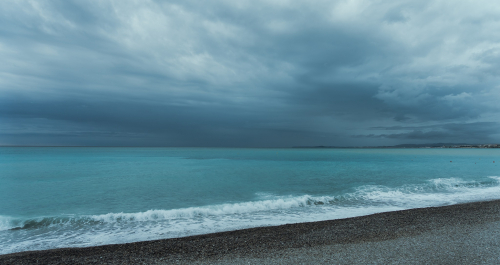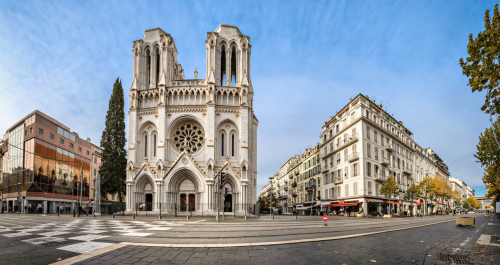-
News & programmes
Monaco Yacht Show - PartnersEVENTS 2024EVENTS 2025Press ReleaseNewslettersVideos
-
Giveaways
Privilege Club PrizesFull English Breakfast PrizesHow to participate ?
-
Podcasts
Top podcastsSpecial reportsRiviera Radio programmes
-
Our Advertisers
Special reportsActivity Sectors
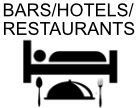 Bars / Hotels / RestaurantsAll contactsBars, pubsLa Réserve de la Mala
Bars / Hotels / RestaurantsAll contactsBars, pubsLa Réserve de la MalaStéphane Rossignol
06 12 35 17 69
groupe@capresort.comMA NOLANSVIEUX NICE
2 RUE ST FRANCOIS DE PAULE
06300 NICENICE PORT
5 QUAI DES DEUX EMMANUEL
06300 NICECANNES
6 RUE BUTTURA
06400 CANNESTEL: +33 4 98 97 93 95
SUNSET - Meridien Beach Plaza2 Av. Princesse Grâce
98000 Monaco
+377 93 30 98 80
Visit WebsiteVAN DIEMEN'SHotels Resorts RestaurantsANANTARA PLAZA12 AVENUE DE VERDUN
06000 NICETel: +33 4 93 16 75 75
Visit websiteAREV St Tropez8 Chem. des Vendanges
83990 Saint-Tropez
04 22 54 06 40
VISIT WEBSITECANOPY BY HILTONCHATEAU DE BERNECHEMIN DES IMBERTS
83780 FLAYOSC
Tel : +33 4 94 60 43 60
Contact Chateau de Berne
Visit website
Visit facebook page
Visit InstagramCOLUMBUS MONTE-CARLO23 Avenue des Papalins
98000 MonacoTel: +377 92 05 90 00
Visit websiteDomaine la Plume4461 Rte du Chanan
06260 La Penne, France
Tel : +33 4 83 93 63 39
Visit websiteFAIRMONT MONTE CARLO12 AVENUE DES SPELUGUES
98000 MONACO
Tel: +377 93 50 65 00
Visit websiteHOTEL CARLTON CANNES58 BOULEVARD DE LA CROISETTE
06400 CANNES
Tel : 04 93 06 40 06
Visit websiteHotel du Castellet3001 Rte des Hauts du Camp,
83330 Le Castellet
Visit WebsiteHYATT REGENCY NICE PALAIS DE LA MEDITERRANEE13 PROMENADE DES ANGLAIS
06000 NICETel : 04 93 27 12 34
Visit websiteLA COMMANDERIE DE PEYRASSOLLA VAGUE DE SAINT PAULLE MERIDIEN BEACH PLAZA22 AVENUE PRINCESSE GRACE
98000 MONACO
Tel : +377 93 30 98 80
Visit websiteLE MERIDIEN NICE1 PROMENADE DES ANGLAIS
06000 NICETel: 04 97 03 44 44
Visit websiteMaison Albar Le Victoria6 Av. de Suède
06000 Nice
+33 4 22 70 08 00
Visit WebsiteNOVOTEL MONTE CARLO16 BOULEVARD PRINCESSE CHARLOTTE
98000 MONACO
Tel : +377 99 99 83 00
Contact Novotel Monte Carlo
Visit websiteSAINT ENDREOL GOLF & SPA RESORTROUTE DE BAGNOLS EN FORET
83920 LA MOTTE EN PROVENCE
Tel : 04 94 51 82 00
Contact St Endreol
Visit website
Play the AdvertSPLENDID HOTEL & SPA50 BD VICTOR HUGO
06000 NICE
Tel : 04 93 16 41 00
Email Splendid Hotel
Visit websiteULTIMATE PROVENCE7270 Route du Luc
83680 La Garde-Freinet
Tel : 04 94 85 29 10
Visit websiteRestaurantsBEFORE MONACO6 ROUTE DE LA PISCINE
98000 MONACO
Tel : +377 99 90 80 30
Visit websiteBLAST8 PLACE CHARLES FELIX
COURS SALEYA
06310 NICE
Tel : 04 93 80 00 50
Visit websiteBRASSERIE EDMOND'S87 AVENUE DU 3 SEPTEMBRE
06320 CAP D'AILTel: +33 (0)4 93 78 01 01
Visit websiteLE SANSOT700 ROUTE DE GRASSE
06140 TOURRETTES SUR LOUP
Tel : 04 93 59 03 94
Contact Le Sansot
Visit websiteMarius6 Quai Antoine 1er
98000 Monaco
TEL : +377 97 97 95 95
Visit WebsiteMarlow5 Place Princesse Gabriella
98000 Monaco
+377 98 06 14 00
VISIT WEBSITENOBU MONTE CARLO12 AVENUE DES SPELUGUES
98000 MONACO
Tel: +377 97 70 70 97
Visit websitePASTIS KITCHEN75 AVENUE DU GENERAL LECLERC
83390 SAINT TROPEZ
Tel : + 33 (0)4 98 12 56 50
Contact Pastis Kitchen
Visit websiteRestaurants Barrière Cannes10 LA CROISETTE
06407 CANNES
Visit websiteSPICY BAMBOO1 PLACE DES BOUGAINVILLIERS
98000 MONACO
Tel : +377 99 99 03 17
Contact Spicy Bamboo
Visit websiteRestaurant - BeachEden Plage MalaPlage de la Mala
06320 Cap-d'Ail
+33 4 93 78 17 06
Visit WebsiteLA RESERVE DE LA MALAPLAGE DE LA MALA
06320 CAP D'AIL
Tel : 04 93 78 21 56PLAGE BEAU RIVAGE107 Quai des États-Unis
06300 Nice
TEL: +33 4 92 00 46 80 Culture / TourismAll contactsChildren's Leisure ParksAOUBRE
Culture / TourismAll contactsChildren's Leisure ParksAOUBREPARC DES CEDRES
QUARTIER ROUVIERE
83340 FLASSANS SUR ISSOLE
Tel : 06 12 58 02 26
Contact Aoubre
Visit websiteLES MOMENTS MUSICAUX3 Pl. Rossetti
06300 Nice
Tel : 06 12 73 63 11
VISIT WEBSITEVillage des FousESPACE LA VANADE
2559 ROUTE DEPARTEMENTALE 2085
06270 VILLENEUVE LOUBET
Tel : 04 92 02 06 06
Visit websiteEventsCarnaval de NiceThe Nice Carnival 2025, themed "King of the Oceans," will take place from February 12 to March 2 in the heart of the French Riviera capital.
Foire de MonacoFoire de Monaco
18 Octobre - 19 Novembre
Port Hercules
98 000 MonacoNice Jazz Festival20 - 23 August 2024
Visit WebsiteSailGPSaint-Tropez
Visit WebsiteEvent venuesGRIMALDI FORUM10 AVENUE PRINCESSE GRACE
98000 MONACO
Tel : +377 99 99 20 00
Visit websiteSCENE 5555 CHEMIN DE FAISSOLE
06250 MOUGINS
Visit websiteInstitutionsMAIRIE DE CANNES1 PLACE BERNARD CORNUT GENTILLE
06400 CANNES
Tel : 04 97 06 40 00
Visit websiteMAIRIE DE GRASSEPLACE DU PETIT PUY
06130 GRASSE
Tel : 04 97 05 51 50
Visit websiteMAIRIE DE MANDELIEU LA NAPOULEAVENUE DE LA REPUBLIQUE
06212 MANDELIEU LA NAPOULE CEDEX
Tel : 04 92 97 30 00
Visit websiteMAIRIE DE MONACOPLACE DE LA MAIRIE
98000 MONACO
Tel : +377 93 15 28 63
Visit websiteMAIRIE DE MOUGINS72 CHEMIN DE L'HORIZON
06251 MOUGINS
Tel : 04 92 92 50 00
Visit websiteMAIRIE DE NICE5 RUE DE L'HOTEL DE VILLE
06364 NICE CEDEX 4
Tel : 04 97 13 20 00
Visit websiteMAIRIE DE THEOULE-SUR-MER1 PLACE GENERAL BERTRAND
BP 40001
06591 THEOULE SUR MER CEDEX
Tel : 04 92 97 47 77
Visit websiteMAIRIE DE VALBONNEVILLE DE VALBONNE SOPHIA ANTIPOLIS
BP 109 1 PLACE DE L'HOTEL DE VILLE
06902 SOPHIA ANTIPOLIS
Tel : 04 93 12 31 86
Visit websiteMairie de Villeneuve-LoubetPLACE DE LA REPUBLIQUE
06270 VILLENEUVE LOUBET
Tel : 04 92 02 60 00
Visit websiteOffice du tourisme de Nice5 Prom. des Anglais
06000 Nice
+33 4 92 14 46 14
Visit WebsiteTOURIST OFFICE VALBERGPLACE CHARLES GINESY
06470 VALBERGTel: 04 93 23 24 25
Visit websiteMountain TourismPURE MONTAGNE COTE D'AZURMuseumsOCEANOGRAPHIC MUSEUM OF MONACOAVENUE SAINT-MARTIN
98000 MONACO
Tel : +377 93 15 36 00
Visit websiteOrchestrasORCHESTRE PHILARMONIQUE DE MONTE CARLOAUDITORIUM RAINIER III
BOULEVARD LOUIS II
BP197 98004 MONACO CEDEX
Contact OPMC
Visit websiteTheatresTheatre National de Nice4-6 PLACE SAINT-FRANCOIS
06300 NICETel : 04 93 13 19 00
Visit websiteTheatre SupportPASSIONNEMENT TNNArtCoral CollectiveLe Hangar Centre des Arts310 Chem. du Ranch
06740 Châteauneuf-Grasse
Visit Website EducationAll contactsBusiness SchoolsIAE NICE
EducationAll contactsBusiness SchoolsIAE NICE24 AVENUE DES DIABLES BLEUS
06300 NICE
Tel : 04 89 15 21 00
Contact IAE Nice
Visit websiteINTERNATIONAL UNIVERSITY OF MONACOLE STELLA
14 RUE HUBERT CLERISSI
98000 MONACO
Tel : +377 97 98 69 86
Contact IUM
Visit websiteSchoolsCentrale Méditérranée38 Rue Frédéric Joliot Curie, 13013 Marseille, France
Tel : +33 4 91 05 45 45
VISIT WEBSITEECOLE MONTESSORI INTERNATIONALE DE NICEGLOBEDUCATEGLOBEDUCATE ICS COTE D'AZUR245 ROUTE DES LUCIOLES
06560 SOPHIA ANTIPOLIS/VALBONNE
Tel : 04 93 64 32 84
Visit website
GLOBEDUCATE MOUGINS SCHOOL615 AVENUE MAURICE DONAT
06250 MOUGINS
Tel : 04 93 90 15 47
Visit websiteGLOBEDUCATE THE INTERNATIONAL SCHOOL OF NICE15 AVENUE CLAUDE DEBUSSY
06200 NICE
Tel : 04 93 21 04 00
Visit websiteInstitut de Français23 Avenue Général-Leclerc
06230 Villefranche-sur-mer
Phone : +33 493 01 88 44
Email : info@institutdefrancais.com
VISIT WEBSITEThe British School of Monaco8 Avenue de Fontvieille
98000 Monaco
Tel : +377 92 00 27 80
VISIT WEBSITETHE INTERNATIONAL SCHOOL OF MONACO12 QUAI ANTOINE 1ER
98000 MONACO
Tel : +377 93 25 68 20
Visit website
Visit Twitter
Play the AdvertUNIVERSITE COTE D'AZUR EventsAll contactsEventsArt & Fashion Show - Rotary Club de Cap d'AilBRADERIE DES COMMERCANTS D'ANTIBES (ANTIBES COEUR D'AZUR)
EventsAll contactsEventsArt & Fashion Show - Rotary Club de Cap d'AilBRADERIE DES COMMERCANTS D'ANTIBES (ANTIBES COEUR D'AZUR)ANTIBES TOWN CENTRE AND OLD TOWN
06600 ANTIBES
Tel : 0612 96 70 18
Contact Antibes Coeur d'Azur
FacebookCANNES YACHTING FESTIVALVIEUX PORT & PORT CANTO
06400 CANNES
Tel : + 33 (0)1 47 56 64 79
Contact Cannes Yachting Festival
Visit website
FacebookCommunauté de la Riviera FrançaisePalais de L’Europe
8 Av. Boyer, 06500 Menton
+33 (0)4 92 41 80 30
contact@salon-international-agrume.com
Visit WebsiteE-Prix Monaco 2025FESTIVAL INTERNATIONAL DU CIRQUE DE MONTE CARLOCHAPITEAU DE FONTVIEILLE
98000 MONACO
Tel : +377 92 05 23 45
Tel : +377 92 05 26 22
Contact the Festival International du Cirque de Monte Carlo
Visit websiteGroove Brand ExperienceTel : +33 4 94 51 04 43
VISIT WEBSITELa Rade Classique 2025LES MOMENTS MUSICAUX DES ALPES MARITIMESMONACO YACHT SHOWPORT HERCULE
PRINCIPALITY OF MONACO 98000
Tel : +377 93 10 41 70
Contact Monaco Yacht Show
Visit websiteROLEX MONTE CARLO MASTERSMONTE CARLO COUNTRY CLUB
155 AVENUE PRINCESSE GRACE
06190 ROQUEBRUNE CAP MARTIN
Visit websiteSailGPSaint-Tropez
Visit WebsiteSCENE 5555 CHEMIN DE FAISSOLE
06250 MOUGINS
Visit websiteSUMMER ART FAIR ANTIBESESPLANADE DU PRE DES PECHEURS
PORT VAUBAN, A LENTREE DU VIEIL ANTIBES
Tel : 04 93 34 80 82
Contact Summer Art Fair
Visit website
FacebookSUNSET - Meridien Beach Plaza2 Av. Princesse Grâce
98000 Monaco
+377 93 30 98 80
Visit WebsiteSuperbe Terre - Commanderie de Peyrassol1204 Chem. de la Commanderie de Peyrassol
83340 Flassans-sur-Issole
+33 4 94 69 71 02
Visit WebsiteCommunication and Events AgenciesEYECOM49 RUE GIOFFREDO
06000 NICE
Tel : +33 (0)4 89 98 09 51 FashionAll contactsClothingBEACH RIDER
FashionAll contactsClothingBEACH RIDER30 RUE AUBERNON
06600 ANTIBES
Contact Beach Rider
Visit websiteCLAUDE BONUCCI50 BOULEVARD DE LA CROISETTE
06400 CANNES
Tel : 04 93 38 68 28
Visit websiteCLO BOUTIQUE17 RUE DE MILLO
98000 MONACO
Tel : +377 97 98 09 99
Contact Clo Boutique
Visit websiteShopping CentreCAP3000CAP3000
AVENUE EUGENE DONADEI
06700 ST LAURENT DU VAR
TEL : 04 93 31 10 35
VISIT WEBSITEWatchesLOUIS JULIAN ET FILS71 RUE D'ANTIBES
06400 CANNES
Tel : 04 93 39 30 68
Contact Louis Julian
Visit websiteTailorJFC STYLE AUTHORITYMONACO
Visit website Finance / InsuranceAll contactsBanksBARCLAYS PRIVATE BANK
Finance / InsuranceAll contactsBanksBARCLAYS PRIVATE BANK31 AVENUE DE LA COSTA
98000 MONACO
Tel : +377 93 25 15 68
Contact Barclays Private Bank
Visit website
Play the AdvertCFM INDOSUEZ WEALTH MANAGEMENT11 BOULEVARD ALBERT 1ER
98000 MONACO
Tel : +377 93 10 20 00
Visit websiteCOMPAGNIE MONEGASQUE DE BANQUE23 AVENUE DE LA COSTA
98000 MONACO
Tel : +377 93 15 77 77
Contact CMB
Visit websiteCREDIT AGRICOLE111 AVENUE EMILE DECHAME
06700 SAINT-LAURENT-DU-VAR
Tel : 09 69 36 30 30
Visit websiteMoncrief Private Bank3-9 BOULEVARD DES MOULINS
98000 MONACO
Tel : +377 99 99 95 00
Visit websiteUBS MONACO10/12 QUAI ANTOINE
98000 MONACOTEL: +337 93 15 58 15
VISIT WEBSITEBusiness and Assets NotariesCHAMBRE DES NOTAIRES18 RUE DU CONGRES
06000 NICE
CONTACT CHAMBRE DES NOTAIRES
VISIT WEBSITECurrency ExchangeBNC NICE17 AVENUE JEAN MEDECIN
06000 NICETel: 04 93 87 99 72
RIVIERA CHANGE MONACO20 RUE COMTE FELIX GASTALDI
98000 MONACOTel: +377 97 77 54 82
Visit websiteFinancial InstitutionsBLEVINS FRANKSWTC2 - MEDIA GARDEN HOTEL
120 ROUTE DES MACARONS
06560 VALBONNE
Tel : 04 93 00 17 80
Contact Blevins Franks
Visit website
Play the AdvertLawyersNATHALIE C. HARROP1 PLACE MAGENTA
06000 NICE
Tel : 04 93 53 67 20InsuranceFort Insurance540 première avenue
06600 Antibes
Tel: +33 (0)4 22 32 57 30
WebsiteJutheau HussonJutheau Husson Private Insurance
24 Boulevard Princesse Charlotte
98000 Monaco
T. : (+377) 97 97 22 22
private@jutheau-husson.com
Visit Website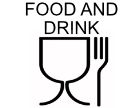 Food and DrinkAll contactsFine Wine SupplierEstandon
Food and DrinkAll contactsFine Wine SupplierEstandon765 Bd Bernard Long, 83170 Brignoles, France
+33 4 94 37 21 00
Visit WebsiteMA NOLAN'S IRISH PUB - CANNES6 Rue Buttura
06400 Cannes
Tel : 04 93 99 63 72
VISIT WEBSITEMA NOLAN'S IRISH PUB - NICE PORT5 Quai des Deux Emmanuels
06300 Nice
Tel : 04 93 31 62 12
VISIT WEBSITEMA NOLAN'S IRISH PUB - VIEUX NICE2 Rue Saint-François de Paule
06300 Nice
Tel : 04 89 97 93 95
VISIT WEBSITEMixt Drinks41 Boulevard d’Italie
+33 6 87 44 25 68
www.mixtdrinks.euONSHORE CELLARS2040 Chemin de Saint-Bernard
06220 VallaurisTEL: +33 4 93 61 80 20
VISIT WEBSITERIVIERA WINE282 RUE DE CISTES
VILLAGE D'ENTREPRISES EURO 92
06600 ANTIBES
Tel : +33 4 93 34 49 66
Contact Riviera Wine
Visit websiteGroceriesBRITISH SMITH'S24-26 BOULEVARD DUGOMMIER,
06600 ANTIBESBRITTAIN'S HOME STORE1913 ROUTE DE CANNES
06560 VALBONNE
Tel : 04 93 42 01 70
Contact Brittain's Home Store
Visit websiteLE COMPTOIR IRLANDAIS25 AVENUE NOTRE DAME
06000 NICE
Tel : 09 67 73 61 78
Visit websiteTerra CanisOlive OilNICOLAS ALZIARI14 RUE SAINT FRANCOIS DE PAULE
06300 NICE
Tel : 04 93 62 94 03318 BOULEVARD DE LA MADELEINE
06000 NICE
Tel : 04 93 44 45 12
Visit websiteVegan DessertsRAW LIVING78 AVENUE DE NICE
06600 ANTIBESTel : +33 6 52 95 76 87
Contact Raw Living
Visit websiteVineyardsCHATEAU DE BERNECHEMIN DES IMBERTS
83780 FLAYOSC
Tel : +33 4 94 60 43 60
Contact Chateau de Berne
Visit website
Visit facebook page
Visit InstagramCHATEAU THUERRY83690 VILLECROZE
Tel : +33 4 94 70 63 02
Contact Chateau Thuerry
Visit websiteLA COMMANDERIE DE PEYRASSOLULTIMATE PROVENCE7270 ROUTE DU LUC
83680 LA GARDE-FREINET
Tel : 04 94 85 29 10
Visit websiteCatererMedusa TraiteurImp. Anselmetti
06320 Cap-d'Ail
06 81 12 05 13
reservation@medusa-traiteur.fr
Visit Website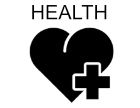 HealthAll contactsAir PurifiersZEPTER - THERAPY AIR ION
HealthAll contactsAir PurifiersZEPTER - THERAPY AIR ION5 AVENUE SAINT LAURENT
98000 MONACO
Tel: +377 93 10 62 10
Contact Zepter
Visit websiteAlcoholics AnonymousALCOHOLICS ANONYMOUSALCOHOLICS ANONYMOUS
11 RUE DE LA BUFFA
06000 NICE
Tel : 06 08 06 36 46
Contact Alcoholics Anonymous
Visit website
Play the AdvertOsteopathENGLISH OSTEOPATH11 AVENUE DU GENERAL DE GAULLE
06240 BEAUSOLEIL
Tel : 04 93 96 50 88
39 RUE VAUBAN
06600 ANTIBES
Tel : 04 93 34 67 17
Contact English Osteopath
Visit website
Play the AdvertPrivate CounsellingRIVIERA WELLBEINGLE BUCKINGHAM PALACE
11 AVENUE SAINT MICHEL
98000 MONACO
Tel : +33 (0)6 40 61 96 91
Contact Riviera Wellbeing
Visit website Home FurnishingsAll contactsCarpets and RugsFASHION FOR HOMES
Home FurnishingsAll contactsCarpets and RugsFASHION FOR HOMES39 BOULEVARD DES MOULINS
98000 MONACO
Tel : +377 92 16 12 16
Visit websiteDecorationBel OeilSHOWROOM NICE
12 Rue Emmanuel Philibert - 06300 Nice
+33 (0)4 93 16 09 09SHOWROOM CANNES
3 rue du Canada - 06400 Cannes
+33 (0)4 92 59 14 04SHOWROOM MONACO
23 Rue de Millo - 98000 Monaco
+377 97 97 49 56
Visit WebsiteBO CONCEPT1254 ROUTE DE LA VALMASQUE
06560 VALBONNEVICTOR PALACE
32 BOULEVARD DES MOULINS
98000 MONACOTel : 04 92 38 98 60
Contact Bo Concept
Visit websiteSablart2040 Chem. de Saint-Bernard
06220 Vallauris
04 93 65 25 83
Visit WebsiteDIYBRICONAUTESFireplace & StovesATRE DESIGN6 BOULEVARD COLONEL DESSERT
83480 PUGET-SUR-ARGENSTEL: 04 94 81 50 09
VISIT WEBSITEATRY HOME9 AVENUE GEORGES POMPIDOU
06130 GRASSE
Tel : 04 93 09 04 90
Contact Atry Home
Visit website
Play the AdvertFurniture - Beds and beddingDuxianaDuxiana Nice
44 rue Gioffredo – 06000 Nice
Tel: + 33 4 93 79 87 94
Visit WebsiteHÄSTENS44 RUE GIOFFREDO
06000 NICE
Tel : 04 93 79 87 94LIT DE FRANCE200 AVENUE DE VERDUN
06700 SAINT-LAURENT-DU-VARTel : 04 93 31 84 77
1640 CHEMIN DE LA PLAINE
06250 MOUGINSTel : 04 93 75 38 40
3030 CHEMIN DE SAINT BERNARD
06220 VALLAURISTEL: 04 93 65 34 69
Visit websiteLITERIE 3000CAP 3000 ZONE
AVENUE FRANCE D'OUTRE MER
06700 SAINT LAURENT DU VAR
Tel : 04 93 0712 54
Contact Literie 3000
Visit websiteFurniture StoresHOMESTORE201 AVENUE DE LA ROUBINE
06150 CANNES LA BOCCA
Tel : 04 93 905 905
Contact Homestore
Visit website
Play the AdvertJBONETNICE PORT
25 RUE SCALIERO
06300 NICETEL: +33 (0) 4 92 00 36 60
NICE CENTRE
33 RUE DE LA BUFFA
06000 NICETEL: +33 (0)4 93 54 77 52
CANNES
2 RUE D'ALGER
06400 NICETEL: +33 (0) 4 93 39 98 23
JbonetMOBILIER DE FRANCE52 AVENUE LEON BERENGER
06700 ST LAURENT DU VAR
Tel : 04 93 07 30 10
Visit website
Play the AdvertSIFAS19 CHEMIN DE FONT GRAISSAN
06250 MOUGINSTel: +33 (0)4 92 18 32 40
10 IMPASSE DES ARTISANS
83310 COGOLINTel: +33 (0)4 94 56 58 66
1170 ROUTE DE NICE
06600 ANTIBESTel: +33 (0)4 92 91 42 00
ENTREPOT
11 ALLEE DES CORMORANS
06150 CANNESTel: 04 93 90 39 00
SUMMIT FURNITURE20 RUE DE MILLO
98000 MONACO
Tel : +377 97 97 54 20
Contact Summit Furniture
Visit websiteHousehold appliances and electronicsBoulangerRUE ALAIN MIMOUN
SHOPPING CENTRE NICE VALLEY
STADE DE NICE ALLIANZ RIVIERA
06200 NICEInterior Design and DecorationCALLENDER HOWORTHTEL: +33 48 35 80 52 7
VISIT WEBSITEQUADRO46 Avenue Pierre de Coubertin
ZC St Isidore
06200 NICE
Tel : 04 82 29 46 83
VISIT WEBSITEKitchensMOBALPANICE PORT
24 BIS QUAI LUNEL
06300 NICETEL: 04 93 55 41 40
VALLAURIS
37 CHEMIN DU PUISSANTON
(CHEMIN DE ST BERNARD)
06220TEL: 04 93 64 93 00
NOBLESSA CUISINES2 PLACE JEAN MOULIN
06000 NICEOutdoor FurnitureMAXXMORA99 BOULEVARD SADI CARNOT
06110 LE CANNETPépinière Sainte Marguerite146 Av. Jean Maubert
06130 Grasse
Tel : +33 4 93 70 63 86Sifas19 Chemin de Font Graissan
06250 Mougins – France
+33 (0)4 93 45 88 00
Visit WebsiteWater treatmentOCTO MARINE12 CITE ARTISANALE
108 CHEMIN DE SAINTE HELENE
06560 VALBONNE
Tel : 04 93 65 04 84
Contact Octo Marine
Visit websiteWine CellarsEUROCAVE16 AVENUE DU MARECHAL FOCH
06000 NICETel: 04 93 16 87 35
Visit website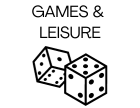 Games and leisureAll contactsRestaurant - Beach3.14 - Cannes
Games and leisureAll contactsRestaurant - Beach3.14 - Cannes5, rue François Einesy
06400 CANNES
Tel : 04 97 06 36 90
VISIT WEBSITE PropertyAll contactsConstruction & renovationGuy PhoenixVICTORIOUS RENOVATIONS
PropertyAll contactsConstruction & renovationGuy PhoenixVICTORIOUS RENOVATIONSTel : 06 03 09 02 62
Contact Victorious Renovations
Visit websiteCorporate Real EstateCBRE22 AVENUE NOTRE DAME
06000 NICETel: 04 93 88 66 58
Visit websiteDecorationMIRROR POOL CONCEPT37 Rue d'Antibes
06400 Cannes
Tel : 06 61 86 54 59
VISIT WEBSITEHoliday rentalsCOTE D'AZUR VILLASVILLA 1 VILLANTIPOLIS
473 ROUTE DES DOLLINES
06560 VALBONNE SOPHIA ANTIPOLIS
Tel : 04 93 63 98 01
Contact Cote d'Azur Villas
Visit websiteKeys & Fly06 08 80 40 90
VISIT WEBSITERIVIERA LUXURY RENTALS7 RUE LEOPOLD BUCQUET
06400 CANNES
Tel : 04 93 99 96 75
Contact Riviera Luxury Rentals
Visit websiteNew BuildsCôte d’Azur Villas473 Route des Dolines Villa 1
06560 Valbonne
VISIT WEBSITEELGEABATIMENT NOUVEL'R
455 PROMENADE DES ANGLAIS
06200 NICETel: 04 42 20 61 98
Visit websiteNEXITY29 AVENUE SIMONE VEIL
IMMEUBLE LE PALAZZO
06200 NICE
Tel : 0800 333 444
Visit websitePITCH IMMONotaryCHAMBRE DES NOTAIRES18 RUE DU CONGRES
06000 NICE
Contact Chambre des notaires
Visit websitePlant Development ProjectsGREEN PLUS9 AVENUE ALBERT II
98000 MONACO
Tel : +377 92 05 68 20
Contact Green Plus
Visit websiteReal estate2b Concept Immobilier"Centre Alpha" - Epsilon II
1846, Bld du Cerceron
83700 St Raphaël
team@2bconcept.co.uk
+33 (0)6 61 10 08 18Balkin / Knight Frank Monaco17 Boulevard Albert Ier
MC 98000 MONACO
T. +377 93 50 3000
M. +377 607937535
info@balkin.mc
Visit WebsiteBEAUCHAMP ESTATES19 RUE DES ETATS UNIS
06400 CANNESTEL: +33 (0) 493 94 45 45
VISIT WEBSITECarlton GroupCarlton group international
Domaine de la Sylviane
Philip Weiser
06 14 34 13 14
philip@carlton-group.comDOTTA IMMOBILIER5 BIS AVENUE PRINCESSE ALICE
98000 MONACO
Tel: +377 97 98 20 00
Visit websiteKNIGHT FRANKVisit website
CANNES
12 bd. De la Croisette
06400 Cannes
+33 (0)4 97 06 30 30
cannes@fr.knightfrank.comMOUGINS
1 rue Honoré Henry
06250 Mougins
+33 (0)4 97 97 32 20
mougins@fr.knightfrank.comSAINT JEAN CAP FERRAT
1 Avenue Denis Semeria,
06230 Saint-Jean-Cap-Ferrat
+33 (0)4 97 97 32 20
capferrat@fr.knightfrank.comVALBONNE
3 rue Grande
06560 Valbonne
+33 (0)4 97 97 32 40
valbonne@fr.knightfrank.comLEPRINCE® IMMOBILIER26 RUE MARECHAL JOFFRE
06000 NICE13 RUE MACCARANI
06000 NICE6 AVENUE JEAN MEDECIN
06000 NICETel: +33 4 89 05 04 75
Visit website
Visit Facebook pageMAGREY & SONSCANNES
9, Bd la Croisette
06400 CannesTEL: +33 (0) 4 92 98 98 22
SAINT-TROPEZ
56, Bd Louis Blanc
83990 Saint-TropezTEL: +33 (0) 4 94 49 13 86
MOUGINS
68, place du Cdt Lamy
06250 MouginsTEL: +33 (0) 4 92 92 03 69
MONACO
2, avenue Saint-Laurent
98000 MonacoTEL: +377 97 70 10 10
Michaël ZingrafMICHAEL ZINGRAF REAL ESTATEMICHAEL ZINGRAF CANNES CROISETTE
34 LA CROISETTE
06400 CANNES
Tel : +33 (0)4 93 39 77 77
Contact Michael Zingraf Cannes CroisetteMICHAEL ZINGRAF CANNES CALIFORNIE
47 AVENUE DU ROI ALBERT 1ER
06400 CANNES
Tel : +33 (0)4 93 94 96 96
Contact Michael Zingraf Cannes CalifornieMICHAEL ZINGRAF LOCATIONS
1 RUE DES ETATS UNIS
06400 CANNES
Tel : +33 (0)4 92 99 19 19
Contact Michael Zingraf LocationsMICHAEL ZINGRAF MOUGINS
2 AVENUE DE LA VICTOIRE
06250 MOUGINS
Tel : +33 (0)4 92 92 87 87
Contact Michael Zingraf MouginsMICHAEL ZINGRAF OPIO
11 CHEMIN DU VILLAGE
06650 OPIO
Tel : +33 (0)4 93 77 93 77
Contact Michael Zingraf OpioMICHAEL ZINGRAF ST PAUL DE VENCE
609 ROUTE DE ST PAUL
06480 LA COLLE SUR LOUP
Tel : +33 (0)4 93 32 32 32
Contact Michael Zingraf St Paul de VenceMICHAEL ZINGRAF CAP D’ANTIBES
141 BOULEVARD JOHN FITZGERALD KENNEDY
06160 CAP D’ANTIBES
Tel : +33 (0)4 92 28 19 19
Contact Michael Zingraf Cap d'AntibesMICHAEL ZINGRAF ST JEAN CAP FERRAT
1330 BOULEVARD NAPOLEON III
PONT ST JEAN
06230 VILLEFRANCHE SUR MER
Tel : +33 (0)4 93 88 99 99
Contact Michael Zingraf St Jean Cap FerratMICHAEL ZINGRAF ST TROPEZ
RESIDENCE LES LICES
1 RUE DU QUADRILLE
83990 ST TROPEZ
Tel : +33 (0)4 94 97 97 97
Contact Michael Zingraf St TropezMICHAEL ZINGRAF GORDES
LA COMBE
84220 GORDES
Tel : +33 (0)4 90 72 06 06
Contact Michael Zingraf GordesMICHAEL ZINGRAF LOURMARIN
“LE RAYOL”
AVENUE PHILIPPE DE GIRARD
84160 LOURMARIN
Tel : +33 (0)4 90 68 85 85
Contact Michael Zingraf LourmarinMICHAEL ZINGRAF ST REMY DE PROVENCE
26 BOULEVARD MIRABEAU
13210 ST REMY DE PROVENCE
Tel : +33 (0)4 32 60 00 00
Contact Michael Zingraf St Remy de provenceMONACO PROPERTIES14 BOULEVARD D'ITALIE
98000 MONACOTel : +377 97 97 33 97
Visit websiteNICE PROPERTIESNICE PROPERTIES OPERA
11 RUE ST FRANCOIS DE PAULE
06300 NICE
Tel : 04 93 62 40 00NICE PROPERTIES PROMENADE
2 RUE HALEVY
06000 NICE
Tel : 04 92 07 09 50NICE PROPERTIES MASSENA
10 RUE MASSENA
06300 NICE
Tel : 04 93 01 50 00NICE PROPERTIES VILLEFRANCHE SUR MER
2 AVENUE DE LA GRANDE BRETAGNE
06230 VILLEFRANCHE SUR MER
Tel : 04 93 91 92 57SAVILLS FRENCH RIVIERA & ALPS11 AVENUE JEAN MEDECIN
06000 NICE
Tel : +33 4 93 87 41 15
Visit websiteSAVILLS MONACO20 BOULEVARD PRINCESSE CHARLOTTE
98000 MONACO
Tel : +377 97 70 42 00
Visit websiteWRETMAN ESTATE19 RUE DES SERBES
06400 CANNES24 RUE DE FRANCE
06000 NICE28 BOULEVARD ALBERT 1ER
06600 ANTIBESCENTRE PLEIN SUD, RD 562
83450 CALLIAN2030 ROUTE DE CANNES
CENTRE BEAUMONT
06560 VALBONNE49 QUAI BONAPARTE
06500 MENTONTel : 04 92 98 92 54
Contact Wretman Estate
Visit website ServicesAll contactsAsset ManagementOlf ManagementTRACY LEONETTI & LBS
ServicesAll contactsAsset ManagementOlf ManagementTRACY LEONETTI & LBSTel : +33 (0)6 59 04 01 51
Contact Tracy Leonetti & LBSBrand Strategy AdvisorsGroove Brand ExperienceTel : +33 4 94 51 04 43
VISIT WEBSITEDepartmental CouncilALPES MARITIMES147 BOULEVARD DU MERCANTOUR B.P. 3007
06201 NICE CEDEX 3
Tel : 04 97 18 60 00
Visit websiteMonaco EconomyMONACO ECONOMIC BOARD (MEB)2 RUE DE LA LÜJERNETA
ATHOS PALACE BLOC A 8EME ETAGE
98000 MONACO
Tel : +377 97 98 68 68
Contact Monaco Economic BoardSquare Services4/6, rue des Lilas
98000 Monaco
+ 377 97 97 00 64
+ 336 24 35 56 37
f.mege@square-services.com
Visit WebsiteLawyersCMS17 Rue Louis Aureglia
98000 Monaco
+377 97 98 42 24
Visit WebsiteNATHALIE C. HARROP1 PLACE MAGENTA
06000 NICE
Tel : 04 93 53 67 20
Contact Nathalie Harrop
Visit websiteTravel AgenciesCROISI EUROPE19 RUE DE LA LIBERTE
06000 NICETel: 04 93 82 21 21
Visit websiteServices/ProvisionsCoaching for manager - Hermann LACKNERhwlackner@compuserve.com
06-83 95 89 49Hedleys655 CHEMIN DU ROGUEZ
BÂTIMENT C LOTS C4 & C5
06670 Castagniers
TEL : +33 4 83 66 02 78
Visit WebsiteBusiness OfficeOne Business Office3 rue du Gabian,
2 Bd Charles III,
98000, Monaco
+377 92 00 64 52
Visit WebsiteCatererMedusa TraiteurImp. Anselmetti
06320 Cap-d'Ail
06 81 12 05 13
reservation@medusa-traiteur.fr
Visit WebsiteBody ShopCarrosserie LecoqMaintenance & Industrial EngineeringSianatechZone F - Monaco Boost
4/6 Av. Albert II
98000 Monaco
+33 4 65 84 70 13
Visit Website ShoppingAll contactsAuction HouseSOTHEBY'S MONACO
ShoppingAll contactsAuction HouseSOTHEBY'S MONACO20 AVENUE DE LA COSTA
98000 MONACOTel: +377 93 30 88 80
Visit websiteMusic StoresMUSIC 3000CAP3000
87 AVENUE DU MARECHAL JUIN
06700 SAINT LAURENT DU VARTEL: 04 93 07 64 31
NICE CENTRE
4 RUE LEPANTE
06000 NICETEL: 04 93 16 15 15
CANNES TOURRADES
ALLE DIEUDONNE COSTES
06210 MANDELIEU LA NAPOULETEL: 04 93 49 00 00
MONACO
43 BOULEVARD DU JARDIN EXOTIQUE
98000 MONACOTEL: +377 92 00 30 10
MARSEILLE LA VALENTINE
CENTRE COMMERCIALE GRAND V
13100 MARSEILLETEL: 04 91 88 53 05
PerfumeGEODORA642 CHEMIN DU VILLARON
83440 MONTAUROUXTEL: +33 (0)9 74 97 05 01
VISIT WEBSITENice Etoile30 Av. Jean Médecin
+33 4 92 17 38 17
Visit WebsitePiano StorePIANOPOLIS4 RUE GIOFFREDO
06000 NICETel: 04 93 54 68 44
Shopping CentresCAP3000AVENUE EUGENE DONADEI
06700 ST LAURENT DU VAR
Tel : 04 93 31 10 35
Visit websiteGALERIES LAFAYETTE6 AVENUE JEAN MEDECIN
06000 NICE
Tel : 04 92 17 36 36IN THE CAP3000 SHOPPING CENTRE
AVENUE EUGNE DONADEI
06700 SAINT LAURENT DU VAR
Tel : 04 93 14 82 12
Visit websiteGaleries Lafayette Nice Masséna6 Av. Jean Médecin
06 000 Nice
Visit WebsiteNICE ETOILE30 AVENUE JEAN MEDECIN
06000 NICE
Tel : +33 4 92 17 38 17
Visit websiteNICE VALLEYZONE COMMERCIALE ST ISIDORE
RUE ALAIN MIMOUN
06200 NICETel: 04 93 44 43 54
Visit websitePOLYGONE RIVIERA119 AVENUE DES ALPES
06800 CAGNES SUR MER
Tel : +33 4 97 02 01 01
Visit websiteTHE MALL LUXURY OUTLETS SAN REMODesign Management S.r.l.
Via Armea 43
18038 Sanremo (IM)Tel: +39 01 84 19 68 955
Visit websiteShopping RecommendationsNICE SHOPPINGOutdoor FurnitureVillaverde1165 Chem. des Combes
06600 Antibes
Tel : +33 4 97 21 21 77
VISIT WEBSITE Sports / GymAll contactsHealth and FitnessMetropolitan Sport Club & Spa
Sports / GymAll contactsHealth and FitnessMetropolitan Sport Club & SpaCAP3000
AVENUE EUGENE DONADEI
06700 ST LAURENT DU VAR
VISIT WEBSITETennisMOURATOGLOU TENNIS ACADEMY3550 ROUTE DES DOLINES
06410 BIOT
Tel : +33 4 92 96 68 78
Contact Mouratoglou Tennis Academy
Visit website TransportAll contactsAirlinesAIR FRANCEDELTA AIR LINESLA COMPAGNIEAirportsAEROPORT DE NICE COTE D'AZUR
TransportAll contactsAirlinesAIR FRANCEDELTA AIR LINESLA COMPAGNIEAirportsAEROPORT DE NICE COTE D'AZURRUE COSTES ET BELLONTE
06206 NICE
Tel : 0820 42 33 33
Visit website
Visit Facebook pageAutomobile ClubAUTOMOBILE CLUB DE MONACO23 BOULEVARD ALBERT 1ER
98000 MONACO
Tel : +377 93 15 26 00
Contact Automobile Club de Monaco
Visit websiteCar DealersASTON MARTIN CANNES235 ROUTE DU CANNET
06250 MOUGINS
TEL: 04 97 10 70 07
Visit websiteBENTLEY MONACO14 RUE GABIAN
98000 MONACO
Tel : +377 97 97 97 65
Visit websiteBENTLEY MOUGINS609 ROUTE DE LA ROQUETTE
06250 MOUGINS
Tel: +33 4 22 84 90 00
Visit websiteBMWMONACO STORE
9 RUE DU GABIAN
98000 MONACO
Tel : +377 97 97 89 60
Visit website
NICE PREMIUM MOTORS
116 AVENUE SIMONE VEIL
06200 NICE
Tel : +33 4 93 18 22 00
Visit website
CANNES BAYERN AVENUE
470 BIS AVENUE SAINT-MARTIN
06250 MOUGINS
Tel : +33 4 93 94 86 20
Visit websiteBYMYCAR MERCEDES NICE83 BOULEVARD GAMBETTA
06000 NICE
Tel : 04 82 29 15 19
Visit websiteJAGUAR LAND ROVER17 AVENUE DES CASTELANS
98000 MONACOTel: +377 97 97 55 55
Visit website112 AVENUE SIMONE VEIL
06200 NICETel: 04 93 18 22 22
Visit website50 AVENUE DU CAMPON
06110 CANNESTel: 04 92 18 00 18
Visit websiteLAMBORGHINIPASSION AUTOMOBILES PRESTIGE (FRANCE) SAS
362 AVENUE DU CAMPON
06110 LE CANNET
Tel : +33 4 22 78 78 78
Visit websiteMERCEDES MONACO7 AVENUE PRINCESSE GRACE
98000 MONACO
Tel : +377 93 25 21 00
Contact Mercedes Monaco SAMGF
Visit websiteMINIBAYERN AVENUE CANNES
470 BIS AVENUE DE SAINT MARTIN
06250 MOUGINSNICE PREMIUM MOTORS ST LAURENT DU VAR
AVENUE HENRI LANTELME
06700 SAINT LAURENT DU VARNICE PREMIUM MOTORS NICE
116 AVENUE SIMONE VEIL
06200 NICESTORE MONACO MONACO MINI
15 BOULEVARD PRINCESSE CHARLOTTE
98000 MONACOTHE ENGLISH CAR MECHANICS2 CHEMIN DES ROURES
06650 OPIO
Tel : 04 93 77 26 73
Contact The English Car Mechanics
Visit website
Play the AdvertInternational ShippingHedleys655 CHEMIN DU ROGUEZ
BÂTIMENT C LOTS C4 & C5
06670 Castagniers
TEL : +33 4 83 66 02 78
Visit WebsiteCar RentalsLUTAM LOCATION105 AVENUE DE LA LIBERTE
06220 GOLFE JUAN
TEL: +33 4 93 63 95 66HOTEL PARK INN (close to Nice airport)
179 BOULEVARD RENE CASSIN
06000 NICE
TEL: +33 4 93 21 21 0040 ALLEE DES PECHEURS
06700 ST LAURENT DU VAR
TEL: +33 4 92 27 05 10767 CHEMIN DES CAMPELIERES
06250 MOUGINS
TEL: +33 4 92 91 00 19178 ROUTE DE DRAGUIGNAN
QUARTIER SAINTE ANNE
06130 GRASSE
TEL: +33 4 93 40 40 80
Visit websiteSIXT LOCATION DE VOITURESAEROPORT DE NICE COTE D'AZUR
Tel : +33-820007498
Contact Sixt
Visit website
Visit facebookMechanicsGlass Protect CannesGlass Protect Cannes
Tel : +33 (0)6 03 64 77 20
430 chemin de la plaine,
Mougins 06250
Visit Instagram PageTHE ENGLISH CAR MECHANICS2 CHEMIN DES ROURES
06650 OPIO
Tel : 04 93 77 26 73
Contact The English Car Mechanics
Visit website
Play the AdvertPet TransportEASYPETTEL: +44 (0)7715 414 818
Public Transport NiceLIGNES D'AZUR2 BOULEVARD HENRI SAPPIA
06100 NICE
Visit websiteTravel AgenciesCROISI EUROPE19 RUE DE LA LIBERTE
06000 NICETel: 04 93 82 21 21
Visit website YachtingAll contactsEventsMyba Charter Show 2024 - GenoaMYBA THE WORLDWIDE YACHTING ASSOCIATION
YachtingAll contactsEventsMyba Charter Show 2024 - GenoaMYBA THE WORLDWIDE YACHTING ASSOCIATION120 AVENUE EUGENE DONADEI
06700 ST LAURENT DU VAR
Tel : 04 93 31 85 49
Contact MYBA
Visit websiteBrokerage, Charter companies & Training coursesBDA EUROPENORTHROP AND JOHNSON14 AVENUE DE VERDUN
06600 ANTIBES
Tel : 04 93 34 84 01LE BEAU RIVAGE
9 AVENUE D'OSTENDE
98000 MONACO
Tel : +377 97 77 27 20
Contact Northrop & Johnson
Visit website
Visit Facebook pageSUNSEEKER FRANCEPORT DE PLAISANCE
06210 MANDELIEU LA NAPOULE
Tel : 04 93 93 67 67
Contact Sunseeker
Visit website
FacebookWEST NAUTICAL13 AVENUE DU 11 NOVEMBRE
06600 ANTIBES
Tel: +33 4 89 02 72 11
Contact West Nautical
Visit websiteYACHTZOO9 Av. d'Ostende
98000 Monaco
Tel : +377 97 70 52 00Charter / RentalNORTHROP AND JOHNSON14 AVENUE DE VERDUN
06600 ANTIBES
Tel : 04 93 34 84 01LE BEAU RIVAGE
9 AVENUE D'OSTENDE
98000 MONACO
Tel : +377 97 77 27 20
Contact Northrop & Johnson
Visit website
Visit Facebook pageSAS DREAM YACHTINGPORT GALLICE
47 BOULEVARD EDOUARD BAUDOIN
06160 JUAN LES PINS
Tel : +33 4 93 65 45 64Crew recruitment, training and placementCAMPER & NICHOLSONS INTERNATIONALGILDO PASTOR CENTER
7 RUE GABIAN
98000 MONACO
Tel : +377 97 97 77 00
Contact Camper & NIcholsons International
Visit website
Visit Facebook page
Visit Instagram pageYOTSPOTOCEAN VILLAGE INNOVATION CENTRE
4 OCEAN WAY
SOUTHAMPTON, HAMPSHIRE, UK
Tel : +44 23 80 381 928
Email Yotspot
Visit website
Instagram
FacebookZEPHYR YACHTING11 RUE FONTVIEILLE
06600 ANTIBES
Tel : +33 4 93 33 34 04
Contact Zephyr Yachting
Visit website
FacebookEnvironment & protectionYACHT CARBON OFFSET16 HANOVER SQUARE
LONDON W1S 1BN
UK
Tel : 0044 777 473 8975
Contact Yacht Carbon Offset
Visit website
Play the advert
Play the advertHeating, Ventilation, Air ConditioningHEINEN & HOPMAN44 AVENUE ROBERT SOLEAU
06600 ANTIBES
Tel : 04 89 02 45 62
Visit website
Visit FacebookInsuranceCAMPER & NICHOLSONS INTERNATIONALGILDO PASTOR CENTER
7 RUE GABIAN
98000 MONACO
Tel : +377 97 97 77 00
Contact Camper & NIcholsons International
Visit website
Visit Facebook page
Visit Instagram pageFort Insurance540 première avenue,
06600 Antibes
Tel: +33 (0)4 22 32 57 30
WebsiteLifecraft and safety equipmentCHANTIERS QUELART457 CHEMIN DES PRES
06410 BIOT
Tel : 04 93 34 43 79
Contact Chantiers Quelart
Visit website
Play the AdvertLong-lasting FlowersStillaTel: +33 6 29 64 67 33
Contact Stilla
Visit websiteMarine EngineeringBUNKER ENGINEERING SOLUTIONS33 Boulevard Rainier III
98000 Monaco
Tel: 06 43 91 58 99
Contact Bunker Engineering Solutions
Visit websiteNew BuildCAMPER & NICHOLSONS INTERNATIONALGILDO PASTOR CENTER
7 RUE GABIAN
98000 MONACO
Tel : +377 97 97 77 00
Contact Camper & NIcholsons International
Visit website
Visit Facebook page
Visit Instagram pagePortsPORT TARRACOMOLL DE COSTA,
TINGLADO 3
43004 TARRAGONA
SPAIN
Tel : +34 977 24 41 73PORT VAUBANAVENUE DE VERDUN
06600 ANTIBES
Tel : 04 92 91 60 00
Visit websiteRefit ShipyardCANTIERE ROSSINIStr. tra I Due Porti, 48,
61121 Pesaro PU
ItalyTEL: +39 0721 259056
Visit websiteSafe Harbor Savannah Yacht Center301 NORTH LATHROP AVENUE
SAVANNAH, GA 31415 USA32.097884, 81.110556
TEL: +1 912 443 6888
VISIT WEBSITEReintjes Marine Gearbox Service DealerTAILOR MADE MONACOVILLA COLORI
33 BOULEVARD RAINIER III
98000 MONACO
Tel : +377 99 99 02 87
Contact Tailor Made Monaco
Visit websiteServices/ProvisionsCABIN SHOP23 RUE GENERAL D'ANDREOSSY
06600 ANTIBES
Tel : 04 92 91 08 00
Contact Cabin Shop
Visit website
Play the AdvertDEAL MARINE39 RUE VAUBAN
06600 ANTIBES
Tel : 04 93 61 56 25
Contact Deal Marine
Visit websiteHomebox246 Chem. de la Romaine
06410 Biot
+33 4 93 65 62 57
Visit WebsiteNAUTICA ASSISTANCEVIA COREA 20
ZI SETTORE 3
07026 OLBIA
ITALY
Tel : 0039 0789 57 607
Contact Nautica
Visit websiteNAUTICHANDLER1170 ROUTE DE NICE
06600 ANTIBES
Tel : +33 4 83 65 02 01
Contact Nautichandler
Visit websiteRIVIERA YACHT SUPPORT14 BOULEVARD D'AGUILLON
06600 ANTIBES
Tel : +33 (0)4 93 34 06 43
Contact Riviera Yacht Support
Visit websiteWest NauticalZEPHYR YACHTING11 RUE FONTVIEILLE
06600 ANTIBES
Tel : +33 4 93 33 34 04
Contact Zephyr Yachting
Visit website
FacebookStorage & sale solutionsRIVIERA CBAY282 RUE DES CISTES
06600 ANTIBES
Tel : 06 10 31 60 74
Contact Riviera CBAY
Visit website
Visit facebook pageSubscription ServicesNautique Club20 Rue des Casemates, 06600 Antibes, France
+33 (0)6 19 03 26 52
Visit WebsiteNEOYOTTEL: 06 73 58 25 72
VISIT WEBSITESuperyacht EngineeringGEETECH57 RUE GRIMALDI
LE PANORAMA A/B
98000 MONACO
Tel : +377 99 90 92 44
Contact Geetech
Visit websiteToys, Textiles & ToolsYORIZONS45 AVENUE PASTEUR
06600 ANTIBES
Tel : +33 (0)4 97 04 99 00
Visit websiteWater treatmentOCTO MARINE12 CITE ARTISANAL
108 CHEMIN DE ST HELENE
0650 VALBONNE
Tel : 04 93 65 04 84
Contact Octo Marine
Visit websiteYacht managementHILL ROBINSONRESIDENCES DU PORT VAUBAN
17 AVENUE DU 11 NOVEMBRE
06600 ANTIBES
Tel : 04 92 90 59 59
Contact Hill Robinson
Visit websiteNAUTICA ASSISTANCEVIA COREA 20
ZI SETTORE 3
07026 OLBIA
ITALY
Tel : 0039 0789 57 607
Contact Nautica
Visit websiteNORTHROP AND JOHNSON14 AVENUE DE VERDUN
06600 ANTIBES
Tel : 04 93 34 84 01LE BEAU RIVAGE
9 AVENUE D'OSTENDE
98000 MONACO
Tel : +377 97 77 27 20
Contact Northrop & Johnson
Visit website
Visit Facebook pageYacht MarketplaceYACHTNEEDS4/6 AVENUE ALBERT II
C/O MONACO TECH (7 ETAGE, ZONE F)
98000 MONACO
Tel: +377 97 97 27 74
Contact YachtNeeds
Visit websiteYacht TravelATPI Yacht Travel24 Rue Assalit
06000 Nice
France
Tel : +33 4 97 03 71 91
Mail : amara.rahmani@atpi.com
VISIT WEBSITE -
Contact & advertising
Video presentation
-
News & programmes
Monaco Yacht Show - PartnersEVENTS 2024EVENTS 2025Press ReleaseNewslettersVideos
-
Giveaways
Privilege Club PrizesFull English Breakfast PrizesHow to participate ?
-
Podcasts
Top podcastsSpecial reportsRiviera Radio programmes
-
Our Advertisers
Special reportsActivity Sectors
 Bars / Hotels / RestaurantsAll contactsBars, pubsLa Réserve de la Mala
Bars / Hotels / RestaurantsAll contactsBars, pubsLa Réserve de la MalaStéphane Rossignol
06 12 35 17 69
groupe@capresort.comMA NOLANSVIEUX NICE
2 RUE ST FRANCOIS DE PAULE
06300 NICENICE PORT
5 QUAI DES DEUX EMMANUEL
06300 NICECANNES
6 RUE BUTTURA
06400 CANNESTEL: +33 4 98 97 93 95
SUNSET - Meridien Beach Plaza2 Av. Princesse Grâce
98000 Monaco
+377 93 30 98 80
Visit WebsiteVAN DIEMEN'SHotels Resorts RestaurantsANANTARA PLAZA12 AVENUE DE VERDUN
06000 NICETel: +33 4 93 16 75 75
Visit websiteAREV St Tropez8 Chem. des Vendanges
83990 Saint-Tropez
04 22 54 06 40
VISIT WEBSITECANOPY BY HILTONCHATEAU DE BERNECHEMIN DES IMBERTS
83780 FLAYOSC
Tel : +33 4 94 60 43 60
Contact Chateau de Berne
Visit website
Visit facebook page
Visit InstagramCOLUMBUS MONTE-CARLO23 Avenue des Papalins
98000 MonacoTel: +377 92 05 90 00
Visit websiteDomaine la Plume4461 Rte du Chanan
06260 La Penne, France
Tel : +33 4 83 93 63 39
Visit websiteFAIRMONT MONTE CARLO12 AVENUE DES SPELUGUES
98000 MONACO
Tel: +377 93 50 65 00
Visit websiteHOTEL CARLTON CANNES58 BOULEVARD DE LA CROISETTE
06400 CANNES
Tel : 04 93 06 40 06
Visit websiteHotel du Castellet3001 Rte des Hauts du Camp,
83330 Le Castellet
Visit WebsiteHYATT REGENCY NICE PALAIS DE LA MEDITERRANEE13 PROMENADE DES ANGLAIS
06000 NICETel : 04 93 27 12 34
Visit websiteLA COMMANDERIE DE PEYRASSOLLA VAGUE DE SAINT PAULLE MERIDIEN BEACH PLAZA22 AVENUE PRINCESSE GRACE
98000 MONACO
Tel : +377 93 30 98 80
Visit websiteLE MERIDIEN NICE1 PROMENADE DES ANGLAIS
06000 NICETel: 04 97 03 44 44
Visit websiteMaison Albar Le Victoria6 Av. de Suède
06000 Nice
+33 4 22 70 08 00
Visit WebsiteNOVOTEL MONTE CARLO16 BOULEVARD PRINCESSE CHARLOTTE
98000 MONACO
Tel : +377 99 99 83 00
Contact Novotel Monte Carlo
Visit websiteSAINT ENDREOL GOLF & SPA RESORTROUTE DE BAGNOLS EN FORET
83920 LA MOTTE EN PROVENCE
Tel : 04 94 51 82 00
Contact St Endreol
Visit website
Play the AdvertSPLENDID HOTEL & SPA50 BD VICTOR HUGO
06000 NICE
Tel : 04 93 16 41 00
Email Splendid Hotel
Visit websiteULTIMATE PROVENCE7270 Route du Luc
83680 La Garde-Freinet
Tel : 04 94 85 29 10
Visit websiteRestaurantsBEFORE MONACO6 ROUTE DE LA PISCINE
98000 MONACO
Tel : +377 99 90 80 30
Visit websiteBLAST8 PLACE CHARLES FELIX
COURS SALEYA
06310 NICE
Tel : 04 93 80 00 50
Visit websiteBRASSERIE EDMOND'S87 AVENUE DU 3 SEPTEMBRE
06320 CAP D'AILTel: +33 (0)4 93 78 01 01
Visit websiteLE SANSOT700 ROUTE DE GRASSE
06140 TOURRETTES SUR LOUP
Tel : 04 93 59 03 94
Contact Le Sansot
Visit websiteMarius6 Quai Antoine 1er
98000 Monaco
TEL : +377 97 97 95 95
Visit WebsiteMarlow5 Place Princesse Gabriella
98000 Monaco
+377 98 06 14 00
VISIT WEBSITENOBU MONTE CARLO12 AVENUE DES SPELUGUES
98000 MONACO
Tel: +377 97 70 70 97
Visit websitePASTIS KITCHEN75 AVENUE DU GENERAL LECLERC
83390 SAINT TROPEZ
Tel : + 33 (0)4 98 12 56 50
Contact Pastis Kitchen
Visit websiteRestaurants Barrière Cannes10 LA CROISETTE
06407 CANNES
Visit websiteSPICY BAMBOO1 PLACE DES BOUGAINVILLIERS
98000 MONACO
Tel : +377 99 99 03 17
Contact Spicy Bamboo
Visit websiteRestaurant - BeachEden Plage MalaPlage de la Mala
06320 Cap-d'Ail
+33 4 93 78 17 06
Visit WebsiteLA RESERVE DE LA MALAPLAGE DE LA MALA
06320 CAP D'AIL
Tel : 04 93 78 21 56PLAGE BEAU RIVAGE107 Quai des États-Unis
06300 Nice
TEL: +33 4 92 00 46 80 Culture / TourismAll contactsChildren's Leisure ParksAOUBRE
Culture / TourismAll contactsChildren's Leisure ParksAOUBREPARC DES CEDRES
QUARTIER ROUVIERE
83340 FLASSANS SUR ISSOLE
Tel : 06 12 58 02 26
Contact Aoubre
Visit websiteLES MOMENTS MUSICAUX3 Pl. Rossetti
06300 Nice
Tel : 06 12 73 63 11
VISIT WEBSITEVillage des FousESPACE LA VANADE
2559 ROUTE DEPARTEMENTALE 2085
06270 VILLENEUVE LOUBET
Tel : 04 92 02 06 06
Visit websiteEventsCarnaval de NiceThe Nice Carnival 2025, themed "King of the Oceans," will take place from February 12 to March 2 in the heart of the French Riviera capital.
Foire de MonacoFoire de Monaco
18 Octobre - 19 Novembre
Port Hercules
98 000 MonacoNice Jazz Festival20 - 23 August 2024
Visit WebsiteSailGPSaint-Tropez
Visit WebsiteEvent venuesGRIMALDI FORUM10 AVENUE PRINCESSE GRACE
98000 MONACO
Tel : +377 99 99 20 00
Visit websiteSCENE 5555 CHEMIN DE FAISSOLE
06250 MOUGINS
Visit websiteInstitutionsMAIRIE DE CANNES1 PLACE BERNARD CORNUT GENTILLE
06400 CANNES
Tel : 04 97 06 40 00
Visit websiteMAIRIE DE GRASSEPLACE DU PETIT PUY
06130 GRASSE
Tel : 04 97 05 51 50
Visit websiteMAIRIE DE MANDELIEU LA NAPOULEAVENUE DE LA REPUBLIQUE
06212 MANDELIEU LA NAPOULE CEDEX
Tel : 04 92 97 30 00
Visit websiteMAIRIE DE MONACOPLACE DE LA MAIRIE
98000 MONACO
Tel : +377 93 15 28 63
Visit websiteMAIRIE DE MOUGINS72 CHEMIN DE L'HORIZON
06251 MOUGINS
Tel : 04 92 92 50 00
Visit websiteMAIRIE DE NICE5 RUE DE L'HOTEL DE VILLE
06364 NICE CEDEX 4
Tel : 04 97 13 20 00
Visit websiteMAIRIE DE THEOULE-SUR-MER1 PLACE GENERAL BERTRAND
BP 40001
06591 THEOULE SUR MER CEDEX
Tel : 04 92 97 47 77
Visit websiteMAIRIE DE VALBONNEVILLE DE VALBONNE SOPHIA ANTIPOLIS
BP 109 1 PLACE DE L'HOTEL DE VILLE
06902 SOPHIA ANTIPOLIS
Tel : 04 93 12 31 86
Visit websiteMairie de Villeneuve-LoubetPLACE DE LA REPUBLIQUE
06270 VILLENEUVE LOUBET
Tel : 04 92 02 60 00
Visit websiteOffice du tourisme de Nice5 Prom. des Anglais
06000 Nice
+33 4 92 14 46 14
Visit WebsiteTOURIST OFFICE VALBERGPLACE CHARLES GINESY
06470 VALBERGTel: 04 93 23 24 25
Visit websiteMountain TourismPURE MONTAGNE COTE D'AZURMuseumsOCEANOGRAPHIC MUSEUM OF MONACOAVENUE SAINT-MARTIN
98000 MONACO
Tel : +377 93 15 36 00
Visit websiteOrchestrasORCHESTRE PHILARMONIQUE DE MONTE CARLOAUDITORIUM RAINIER III
BOULEVARD LOUIS II
BP197 98004 MONACO CEDEX
Contact OPMC
Visit websiteTheatresTheatre National de Nice4-6 PLACE SAINT-FRANCOIS
06300 NICETel : 04 93 13 19 00
Visit websiteTheatre SupportPASSIONNEMENT TNNArtCoral CollectiveLe Hangar Centre des Arts310 Chem. du Ranch
06740 Châteauneuf-Grasse
Visit Website EducationAll contactsBusiness SchoolsIAE NICE
EducationAll contactsBusiness SchoolsIAE NICE24 AVENUE DES DIABLES BLEUS
06300 NICE
Tel : 04 89 15 21 00
Contact IAE Nice
Visit websiteINTERNATIONAL UNIVERSITY OF MONACOLE STELLA
14 RUE HUBERT CLERISSI
98000 MONACO
Tel : +377 97 98 69 86
Contact IUM
Visit websiteSchoolsCentrale Méditérranée38 Rue Frédéric Joliot Curie, 13013 Marseille, France
Tel : +33 4 91 05 45 45
VISIT WEBSITEECOLE MONTESSORI INTERNATIONALE DE NICEGLOBEDUCATEGLOBEDUCATE ICS COTE D'AZUR245 ROUTE DES LUCIOLES
06560 SOPHIA ANTIPOLIS/VALBONNE
Tel : 04 93 64 32 84
Visit website
GLOBEDUCATE MOUGINS SCHOOL615 AVENUE MAURICE DONAT
06250 MOUGINS
Tel : 04 93 90 15 47
Visit websiteGLOBEDUCATE THE INTERNATIONAL SCHOOL OF NICE15 AVENUE CLAUDE DEBUSSY
06200 NICE
Tel : 04 93 21 04 00
Visit websiteInstitut de Français23 Avenue Général-Leclerc
06230 Villefranche-sur-mer
Phone : +33 493 01 88 44
Email : info@institutdefrancais.com
VISIT WEBSITEThe British School of Monaco8 Avenue de Fontvieille
98000 Monaco
Tel : +377 92 00 27 80
VISIT WEBSITETHE INTERNATIONAL SCHOOL OF MONACO12 QUAI ANTOINE 1ER
98000 MONACO
Tel : +377 93 25 68 20
Visit website
Visit Twitter
Play the AdvertUNIVERSITE COTE D'AZUR EventsAll contactsEventsArt & Fashion Show - Rotary Club de Cap d'AilBRADERIE DES COMMERCANTS D'ANTIBES (ANTIBES COEUR D'AZUR)
EventsAll contactsEventsArt & Fashion Show - Rotary Club de Cap d'AilBRADERIE DES COMMERCANTS D'ANTIBES (ANTIBES COEUR D'AZUR)ANTIBES TOWN CENTRE AND OLD TOWN
06600 ANTIBES
Tel : 0612 96 70 18
Contact Antibes Coeur d'Azur
FacebookCANNES YACHTING FESTIVALVIEUX PORT & PORT CANTO
06400 CANNES
Tel : + 33 (0)1 47 56 64 79
Contact Cannes Yachting Festival
Visit website
FacebookCommunauté de la Riviera FrançaisePalais de L’Europe
8 Av. Boyer, 06500 Menton
+33 (0)4 92 41 80 30
contact@salon-international-agrume.com
Visit WebsiteE-Prix Monaco 2025FESTIVAL INTERNATIONAL DU CIRQUE DE MONTE CARLOCHAPITEAU DE FONTVIEILLE
98000 MONACO
Tel : +377 92 05 23 45
Tel : +377 92 05 26 22
Contact the Festival International du Cirque de Monte Carlo
Visit websiteGroove Brand ExperienceTel : +33 4 94 51 04 43
VISIT WEBSITELa Rade Classique 2025LES MOMENTS MUSICAUX DES ALPES MARITIMESMONACO YACHT SHOWPORT HERCULE
PRINCIPALITY OF MONACO 98000
Tel : +377 93 10 41 70
Contact Monaco Yacht Show
Visit websiteROLEX MONTE CARLO MASTERSMONTE CARLO COUNTRY CLUB
155 AVENUE PRINCESSE GRACE
06190 ROQUEBRUNE CAP MARTIN
Visit websiteSailGPSaint-Tropez
Visit WebsiteSCENE 5555 CHEMIN DE FAISSOLE
06250 MOUGINS
Visit websiteSUMMER ART FAIR ANTIBESESPLANADE DU PRE DES PECHEURS
PORT VAUBAN, A LENTREE DU VIEIL ANTIBES
Tel : 04 93 34 80 82
Contact Summer Art Fair
Visit website
FacebookSUNSET - Meridien Beach Plaza2 Av. Princesse Grâce
98000 Monaco
+377 93 30 98 80
Visit WebsiteSuperbe Terre - Commanderie de Peyrassol1204 Chem. de la Commanderie de Peyrassol
83340 Flassans-sur-Issole
+33 4 94 69 71 02
Visit WebsiteCommunication and Events AgenciesEYECOM49 RUE GIOFFREDO
06000 NICE
Tel : +33 (0)4 89 98 09 51 FashionAll contactsClothingBEACH RIDER
FashionAll contactsClothingBEACH RIDER30 RUE AUBERNON
06600 ANTIBES
Contact Beach Rider
Visit websiteCLAUDE BONUCCI50 BOULEVARD DE LA CROISETTE
06400 CANNES
Tel : 04 93 38 68 28
Visit websiteCLO BOUTIQUE17 RUE DE MILLO
98000 MONACO
Tel : +377 97 98 09 99
Contact Clo Boutique
Visit websiteShopping CentreCAP3000CAP3000
AVENUE EUGENE DONADEI
06700 ST LAURENT DU VAR
TEL : 04 93 31 10 35
VISIT WEBSITEWatchesLOUIS JULIAN ET FILS71 RUE D'ANTIBES
06400 CANNES
Tel : 04 93 39 30 68
Contact Louis Julian
Visit websiteTailorJFC STYLE AUTHORITYMONACO
Visit website Finance / InsuranceAll contactsBanksBARCLAYS PRIVATE BANK
Finance / InsuranceAll contactsBanksBARCLAYS PRIVATE BANK31 AVENUE DE LA COSTA
98000 MONACO
Tel : +377 93 25 15 68
Contact Barclays Private Bank
Visit website
Play the AdvertCFM INDOSUEZ WEALTH MANAGEMENT11 BOULEVARD ALBERT 1ER
98000 MONACO
Tel : +377 93 10 20 00
Visit websiteCOMPAGNIE MONEGASQUE DE BANQUE23 AVENUE DE LA COSTA
98000 MONACO
Tel : +377 93 15 77 77
Contact CMB
Visit websiteCREDIT AGRICOLE111 AVENUE EMILE DECHAME
06700 SAINT-LAURENT-DU-VAR
Tel : 09 69 36 30 30
Visit websiteMoncrief Private Bank3-9 BOULEVARD DES MOULINS
98000 MONACO
Tel : +377 99 99 95 00
Visit websiteUBS MONACO10/12 QUAI ANTOINE
98000 MONACOTEL: +337 93 15 58 15
VISIT WEBSITEBusiness and Assets NotariesCHAMBRE DES NOTAIRES18 RUE DU CONGRES
06000 NICE
CONTACT CHAMBRE DES NOTAIRES
VISIT WEBSITECurrency ExchangeBNC NICE17 AVENUE JEAN MEDECIN
06000 NICETel: 04 93 87 99 72
RIVIERA CHANGE MONACO20 RUE COMTE FELIX GASTALDI
98000 MONACOTel: +377 97 77 54 82
Visit websiteFinancial InstitutionsBLEVINS FRANKSWTC2 - MEDIA GARDEN HOTEL
120 ROUTE DES MACARONS
06560 VALBONNE
Tel : 04 93 00 17 80
Contact Blevins Franks
Visit website
Play the AdvertLawyersNATHALIE C. HARROP1 PLACE MAGENTA
06000 NICE
Tel : 04 93 53 67 20InsuranceFort Insurance540 première avenue
06600 Antibes
Tel: +33 (0)4 22 32 57 30
WebsiteJutheau HussonJutheau Husson Private Insurance
24 Boulevard Princesse Charlotte
98000 Monaco
T. : (+377) 97 97 22 22
private@jutheau-husson.com
Visit Website Food and DrinkAll contactsFine Wine SupplierEstandon
Food and DrinkAll contactsFine Wine SupplierEstandon765 Bd Bernard Long, 83170 Brignoles, France
+33 4 94 37 21 00
Visit WebsiteMA NOLAN'S IRISH PUB - CANNES6 Rue Buttura
06400 Cannes
Tel : 04 93 99 63 72
VISIT WEBSITEMA NOLAN'S IRISH PUB - NICE PORT5 Quai des Deux Emmanuels
06300 Nice
Tel : 04 93 31 62 12
VISIT WEBSITEMA NOLAN'S IRISH PUB - VIEUX NICE2 Rue Saint-François de Paule
06300 Nice
Tel : 04 89 97 93 95
VISIT WEBSITEMixt Drinks41 Boulevard d’Italie
+33 6 87 44 25 68
www.mixtdrinks.euONSHORE CELLARS2040 Chemin de Saint-Bernard
06220 VallaurisTEL: +33 4 93 61 80 20
VISIT WEBSITERIVIERA WINE282 RUE DE CISTES
VILLAGE D'ENTREPRISES EURO 92
06600 ANTIBES
Tel : +33 4 93 34 49 66
Contact Riviera Wine
Visit websiteGroceriesBRITISH SMITH'S24-26 BOULEVARD DUGOMMIER,
06600 ANTIBESBRITTAIN'S HOME STORE1913 ROUTE DE CANNES
06560 VALBONNE
Tel : 04 93 42 01 70
Contact Brittain's Home Store
Visit websiteLE COMPTOIR IRLANDAIS25 AVENUE NOTRE DAME
06000 NICE
Tel : 09 67 73 61 78
Visit websiteTerra CanisOlive OilNICOLAS ALZIARI14 RUE SAINT FRANCOIS DE PAULE
06300 NICE
Tel : 04 93 62 94 03318 BOULEVARD DE LA MADELEINE
06000 NICE
Tel : 04 93 44 45 12
Visit websiteVegan DessertsRAW LIVING78 AVENUE DE NICE
06600 ANTIBESTel : +33 6 52 95 76 87
Contact Raw Living
Visit websiteVineyardsCHATEAU DE BERNECHEMIN DES IMBERTS
83780 FLAYOSC
Tel : +33 4 94 60 43 60
Contact Chateau de Berne
Visit website
Visit facebook page
Visit InstagramCHATEAU THUERRY83690 VILLECROZE
Tel : +33 4 94 70 63 02
Contact Chateau Thuerry
Visit websiteLA COMMANDERIE DE PEYRASSOLULTIMATE PROVENCE7270 ROUTE DU LUC
83680 LA GARDE-FREINET
Tel : 04 94 85 29 10
Visit websiteCatererMedusa TraiteurImp. Anselmetti
06320 Cap-d'Ail
06 81 12 05 13
reservation@medusa-traiteur.fr
Visit Website HealthAll contactsAir PurifiersZEPTER - THERAPY AIR ION
HealthAll contactsAir PurifiersZEPTER - THERAPY AIR ION5 AVENUE SAINT LAURENT
98000 MONACO
Tel: +377 93 10 62 10
Contact Zepter
Visit websiteAlcoholics AnonymousALCOHOLICS ANONYMOUSALCOHOLICS ANONYMOUS
11 RUE DE LA BUFFA
06000 NICE
Tel : 06 08 06 36 46
Contact Alcoholics Anonymous
Visit website
Play the AdvertOsteopathENGLISH OSTEOPATH11 AVENUE DU GENERAL DE GAULLE
06240 BEAUSOLEIL
Tel : 04 93 96 50 88
39 RUE VAUBAN
06600 ANTIBES
Tel : 04 93 34 67 17
Contact English Osteopath
Visit website
Play the AdvertPrivate CounsellingRIVIERA WELLBEINGLE BUCKINGHAM PALACE
11 AVENUE SAINT MICHEL
98000 MONACO
Tel : +33 (0)6 40 61 96 91
Contact Riviera Wellbeing
Visit website Home FurnishingsAll contactsCarpets and RugsFASHION FOR HOMES
Home FurnishingsAll contactsCarpets and RugsFASHION FOR HOMES39 BOULEVARD DES MOULINS
98000 MONACO
Tel : +377 92 16 12 16
Visit websiteDecorationBel OeilSHOWROOM NICE
12 Rue Emmanuel Philibert - 06300 Nice
+33 (0)4 93 16 09 09SHOWROOM CANNES
3 rue du Canada - 06400 Cannes
+33 (0)4 92 59 14 04SHOWROOM MONACO
23 Rue de Millo - 98000 Monaco
+377 97 97 49 56
Visit WebsiteBO CONCEPT1254 ROUTE DE LA VALMASQUE
06560 VALBONNEVICTOR PALACE
32 BOULEVARD DES MOULINS
98000 MONACOTel : 04 92 38 98 60
Contact Bo Concept
Visit websiteSablart2040 Chem. de Saint-Bernard
06220 Vallauris
04 93 65 25 83
Visit WebsiteDIYBRICONAUTESFireplace & StovesATRE DESIGN6 BOULEVARD COLONEL DESSERT
83480 PUGET-SUR-ARGENSTEL: 04 94 81 50 09
VISIT WEBSITEATRY HOME9 AVENUE GEORGES POMPIDOU
06130 GRASSE
Tel : 04 93 09 04 90
Contact Atry Home
Visit website
Play the AdvertFurniture - Beds and beddingDuxianaDuxiana Nice
44 rue Gioffredo – 06000 Nice
Tel: + 33 4 93 79 87 94
Visit WebsiteHÄSTENS44 RUE GIOFFREDO
06000 NICE
Tel : 04 93 79 87 94LIT DE FRANCE200 AVENUE DE VERDUN
06700 SAINT-LAURENT-DU-VARTel : 04 93 31 84 77
1640 CHEMIN DE LA PLAINE
06250 MOUGINSTel : 04 93 75 38 40
3030 CHEMIN DE SAINT BERNARD
06220 VALLAURISTEL: 04 93 65 34 69
Visit websiteLITERIE 3000CAP 3000 ZONE
AVENUE FRANCE D'OUTRE MER
06700 SAINT LAURENT DU VAR
Tel : 04 93 0712 54
Contact Literie 3000
Visit websiteFurniture StoresHOMESTORE201 AVENUE DE LA ROUBINE
06150 CANNES LA BOCCA
Tel : 04 93 905 905
Contact Homestore
Visit website
Play the AdvertJBONETNICE PORT
25 RUE SCALIERO
06300 NICETEL: +33 (0) 4 92 00 36 60
NICE CENTRE
33 RUE DE LA BUFFA
06000 NICETEL: +33 (0)4 93 54 77 52
CANNES
2 RUE D'ALGER
06400 NICETEL: +33 (0) 4 93 39 98 23
JbonetMOBILIER DE FRANCE52 AVENUE LEON BERENGER
06700 ST LAURENT DU VAR
Tel : 04 93 07 30 10
Visit website
Play the AdvertSIFAS19 CHEMIN DE FONT GRAISSAN
06250 MOUGINSTel: +33 (0)4 92 18 32 40
10 IMPASSE DES ARTISANS
83310 COGOLINTel: +33 (0)4 94 56 58 66
1170 ROUTE DE NICE
06600 ANTIBESTel: +33 (0)4 92 91 42 00
ENTREPOT
11 ALLEE DES CORMORANS
06150 CANNESTel: 04 93 90 39 00
SUMMIT FURNITURE20 RUE DE MILLO
98000 MONACO
Tel : +377 97 97 54 20
Contact Summit Furniture
Visit websiteHousehold appliances and electronicsBoulangerRUE ALAIN MIMOUN
SHOPPING CENTRE NICE VALLEY
STADE DE NICE ALLIANZ RIVIERA
06200 NICEInterior Design and DecorationCALLENDER HOWORTHTEL: +33 48 35 80 52 7
VISIT WEBSITEQUADRO46 Avenue Pierre de Coubertin
ZC St Isidore
06200 NICE
Tel : 04 82 29 46 83
VISIT WEBSITEKitchensMOBALPANICE PORT
24 BIS QUAI LUNEL
06300 NICETEL: 04 93 55 41 40
VALLAURIS
37 CHEMIN DU PUISSANTON
(CHEMIN DE ST BERNARD)
06220TEL: 04 93 64 93 00
NOBLESSA CUISINES2 PLACE JEAN MOULIN
06000 NICEOutdoor FurnitureMAXXMORA99 BOULEVARD SADI CARNOT
06110 LE CANNETPépinière Sainte Marguerite146 Av. Jean Maubert
06130 Grasse
Tel : +33 4 93 70 63 86Sifas19 Chemin de Font Graissan
06250 Mougins – France
+33 (0)4 93 45 88 00
Visit WebsiteWater treatmentOCTO MARINE12 CITE ARTISANALE
108 CHEMIN DE SAINTE HELENE
06560 VALBONNE
Tel : 04 93 65 04 84
Contact Octo Marine
Visit websiteWine CellarsEUROCAVE16 AVENUE DU MARECHAL FOCH
06000 NICETel: 04 93 16 87 35
Visit website Games and leisureAll contactsRestaurant - Beach3.14 - Cannes
Games and leisureAll contactsRestaurant - Beach3.14 - Cannes5, rue François Einesy
06400 CANNES
Tel : 04 97 06 36 90
VISIT WEBSITE PropertyAll contactsConstruction & renovationGuy PhoenixVICTORIOUS RENOVATIONS
PropertyAll contactsConstruction & renovationGuy PhoenixVICTORIOUS RENOVATIONSTel : 06 03 09 02 62
Contact Victorious Renovations
Visit websiteCorporate Real EstateCBRE22 AVENUE NOTRE DAME
06000 NICETel: 04 93 88 66 58
Visit websiteDecorationMIRROR POOL CONCEPT37 Rue d'Antibes
06400 Cannes
Tel : 06 61 86 54 59
VISIT WEBSITEHoliday rentalsCOTE D'AZUR VILLASVILLA 1 VILLANTIPOLIS
473 ROUTE DES DOLLINES
06560 VALBONNE SOPHIA ANTIPOLIS
Tel : 04 93 63 98 01
Contact Cote d'Azur Villas
Visit websiteKeys & Fly06 08 80 40 90
VISIT WEBSITERIVIERA LUXURY RENTALS7 RUE LEOPOLD BUCQUET
06400 CANNES
Tel : 04 93 99 96 75
Contact Riviera Luxury Rentals
Visit websiteNew BuildsCôte d’Azur Villas473 Route des Dolines Villa 1
06560 Valbonne
VISIT WEBSITEELGEABATIMENT NOUVEL'R
455 PROMENADE DES ANGLAIS
06200 NICETel: 04 42 20 61 98
Visit websiteNEXITY29 AVENUE SIMONE VEIL
IMMEUBLE LE PALAZZO
06200 NICE
Tel : 0800 333 444
Visit websitePITCH IMMONotaryCHAMBRE DES NOTAIRES18 RUE DU CONGRES
06000 NICE
Contact Chambre des notaires
Visit websitePlant Development ProjectsGREEN PLUS9 AVENUE ALBERT II
98000 MONACO
Tel : +377 92 05 68 20
Contact Green Plus
Visit websiteReal estate2b Concept Immobilier"Centre Alpha" - Epsilon II
1846, Bld du Cerceron
83700 St Raphaël
team@2bconcept.co.uk
+33 (0)6 61 10 08 18Balkin / Knight Frank Monaco17 Boulevard Albert Ier
MC 98000 MONACO
T. +377 93 50 3000
M. +377 607937535
info@balkin.mc
Visit WebsiteBEAUCHAMP ESTATES19 RUE DES ETATS UNIS
06400 CANNESTEL: +33 (0) 493 94 45 45
VISIT WEBSITECarlton GroupCarlton group international
Domaine de la Sylviane
Philip Weiser
06 14 34 13 14
philip@carlton-group.comDOTTA IMMOBILIER5 BIS AVENUE PRINCESSE ALICE
98000 MONACO
Tel: +377 97 98 20 00
Visit websiteKNIGHT FRANKVisit website
CANNES
12 bd. De la Croisette
06400 Cannes
+33 (0)4 97 06 30 30
cannes@fr.knightfrank.comMOUGINS
1 rue Honoré Henry
06250 Mougins
+33 (0)4 97 97 32 20
mougins@fr.knightfrank.comSAINT JEAN CAP FERRAT
1 Avenue Denis Semeria,
06230 Saint-Jean-Cap-Ferrat
+33 (0)4 97 97 32 20
capferrat@fr.knightfrank.comVALBONNE
3 rue Grande
06560 Valbonne
+33 (0)4 97 97 32 40
valbonne@fr.knightfrank.comLEPRINCE® IMMOBILIER26 RUE MARECHAL JOFFRE
06000 NICE13 RUE MACCARANI
06000 NICE6 AVENUE JEAN MEDECIN
06000 NICETel: +33 4 89 05 04 75
Visit website
Visit Facebook pageMAGREY & SONSCANNES
9, Bd la Croisette
06400 CannesTEL: +33 (0) 4 92 98 98 22
SAINT-TROPEZ
56, Bd Louis Blanc
83990 Saint-TropezTEL: +33 (0) 4 94 49 13 86
MOUGINS
68, place du Cdt Lamy
06250 MouginsTEL: +33 (0) 4 92 92 03 69
MONACO
2, avenue Saint-Laurent
98000 MonacoTEL: +377 97 70 10 10
Michaël ZingrafMICHAEL ZINGRAF REAL ESTATEMICHAEL ZINGRAF CANNES CROISETTE
34 LA CROISETTE
06400 CANNES
Tel : +33 (0)4 93 39 77 77
Contact Michael Zingraf Cannes CroisetteMICHAEL ZINGRAF CANNES CALIFORNIE
47 AVENUE DU ROI ALBERT 1ER
06400 CANNES
Tel : +33 (0)4 93 94 96 96
Contact Michael Zingraf Cannes CalifornieMICHAEL ZINGRAF LOCATIONS
1 RUE DES ETATS UNIS
06400 CANNES
Tel : +33 (0)4 92 99 19 19
Contact Michael Zingraf LocationsMICHAEL ZINGRAF MOUGINS
2 AVENUE DE LA VICTOIRE
06250 MOUGINS
Tel : +33 (0)4 92 92 87 87
Contact Michael Zingraf MouginsMICHAEL ZINGRAF OPIO
11 CHEMIN DU VILLAGE
06650 OPIO
Tel : +33 (0)4 93 77 93 77
Contact Michael Zingraf OpioMICHAEL ZINGRAF ST PAUL DE VENCE
609 ROUTE DE ST PAUL
06480 LA COLLE SUR LOUP
Tel : +33 (0)4 93 32 32 32
Contact Michael Zingraf St Paul de VenceMICHAEL ZINGRAF CAP D’ANTIBES
141 BOULEVARD JOHN FITZGERALD KENNEDY
06160 CAP D’ANTIBES
Tel : +33 (0)4 92 28 19 19
Contact Michael Zingraf Cap d'AntibesMICHAEL ZINGRAF ST JEAN CAP FERRAT
1330 BOULEVARD NAPOLEON III
PONT ST JEAN
06230 VILLEFRANCHE SUR MER
Tel : +33 (0)4 93 88 99 99
Contact Michael Zingraf St Jean Cap FerratMICHAEL ZINGRAF ST TROPEZ
RESIDENCE LES LICES
1 RUE DU QUADRILLE
83990 ST TROPEZ
Tel : +33 (0)4 94 97 97 97
Contact Michael Zingraf St TropezMICHAEL ZINGRAF GORDES
LA COMBE
84220 GORDES
Tel : +33 (0)4 90 72 06 06
Contact Michael Zingraf GordesMICHAEL ZINGRAF LOURMARIN
“LE RAYOL”
AVENUE PHILIPPE DE GIRARD
84160 LOURMARIN
Tel : +33 (0)4 90 68 85 85
Contact Michael Zingraf LourmarinMICHAEL ZINGRAF ST REMY DE PROVENCE
26 BOULEVARD MIRABEAU
13210 ST REMY DE PROVENCE
Tel : +33 (0)4 32 60 00 00
Contact Michael Zingraf St Remy de provenceMONACO PROPERTIES14 BOULEVARD D'ITALIE
98000 MONACOTel : +377 97 97 33 97
Visit websiteNICE PROPERTIESNICE PROPERTIES OPERA
11 RUE ST FRANCOIS DE PAULE
06300 NICE
Tel : 04 93 62 40 00NICE PROPERTIES PROMENADE
2 RUE HALEVY
06000 NICE
Tel : 04 92 07 09 50NICE PROPERTIES MASSENA
10 RUE MASSENA
06300 NICE
Tel : 04 93 01 50 00NICE PROPERTIES VILLEFRANCHE SUR MER
2 AVENUE DE LA GRANDE BRETAGNE
06230 VILLEFRANCHE SUR MER
Tel : 04 93 91 92 57SAVILLS FRENCH RIVIERA & ALPS11 AVENUE JEAN MEDECIN
06000 NICE
Tel : +33 4 93 87 41 15
Visit websiteSAVILLS MONACO20 BOULEVARD PRINCESSE CHARLOTTE
98000 MONACO
Tel : +377 97 70 42 00
Visit websiteWRETMAN ESTATE19 RUE DES SERBES
06400 CANNES24 RUE DE FRANCE
06000 NICE28 BOULEVARD ALBERT 1ER
06600 ANTIBESCENTRE PLEIN SUD, RD 562
83450 CALLIAN2030 ROUTE DE CANNES
CENTRE BEAUMONT
06560 VALBONNE49 QUAI BONAPARTE
06500 MENTONTel : 04 92 98 92 54
Contact Wretman Estate
Visit website ServicesAll contactsAsset ManagementOlf ManagementTRACY LEONETTI & LBS
ServicesAll contactsAsset ManagementOlf ManagementTRACY LEONETTI & LBSTel : +33 (0)6 59 04 01 51
Contact Tracy Leonetti & LBSBrand Strategy AdvisorsGroove Brand ExperienceTel : +33 4 94 51 04 43
VISIT WEBSITEDepartmental CouncilALPES MARITIMES147 BOULEVARD DU MERCANTOUR B.P. 3007
06201 NICE CEDEX 3
Tel : 04 97 18 60 00
Visit websiteMonaco EconomyMONACO ECONOMIC BOARD (MEB)2 RUE DE LA LÜJERNETA
ATHOS PALACE BLOC A 8EME ETAGE
98000 MONACO
Tel : +377 97 98 68 68
Contact Monaco Economic BoardSquare Services4/6, rue des Lilas
98000 Monaco
+ 377 97 97 00 64
+ 336 24 35 56 37
f.mege@square-services.com
Visit WebsiteLawyersCMS17 Rue Louis Aureglia
98000 Monaco
+377 97 98 42 24
Visit WebsiteNATHALIE C. HARROP1 PLACE MAGENTA
06000 NICE
Tel : 04 93 53 67 20
Contact Nathalie Harrop
Visit websiteTravel AgenciesCROISI EUROPE19 RUE DE LA LIBERTE
06000 NICETel: 04 93 82 21 21
Visit websiteServices/ProvisionsCoaching for manager - Hermann LACKNERhwlackner@compuserve.com
06-83 95 89 49Hedleys655 CHEMIN DU ROGUEZ
BÂTIMENT C LOTS C4 & C5
06670 Castagniers
TEL : +33 4 83 66 02 78
Visit WebsiteBusiness OfficeOne Business Office3 rue du Gabian,
2 Bd Charles III,
98000, Monaco
+377 92 00 64 52
Visit WebsiteCatererMedusa TraiteurImp. Anselmetti
06320 Cap-d'Ail
06 81 12 05 13
reservation@medusa-traiteur.fr
Visit WebsiteBody ShopCarrosserie LecoqMaintenance & Industrial EngineeringSianatechZone F - Monaco Boost
4/6 Av. Albert II
98000 Monaco
+33 4 65 84 70 13
Visit Website ShoppingAll contactsAuction HouseSOTHEBY'S MONACO
ShoppingAll contactsAuction HouseSOTHEBY'S MONACO20 AVENUE DE LA COSTA
98000 MONACOTel: +377 93 30 88 80
Visit websiteMusic StoresMUSIC 3000CAP3000
87 AVENUE DU MARECHAL JUIN
06700 SAINT LAURENT DU VARTEL: 04 93 07 64 31
NICE CENTRE
4 RUE LEPANTE
06000 NICETEL: 04 93 16 15 15
CANNES TOURRADES
ALLE DIEUDONNE COSTES
06210 MANDELIEU LA NAPOULETEL: 04 93 49 00 00
MONACO
43 BOULEVARD DU JARDIN EXOTIQUE
98000 MONACOTEL: +377 92 00 30 10
MARSEILLE LA VALENTINE
CENTRE COMMERCIALE GRAND V
13100 MARSEILLETEL: 04 91 88 53 05
PerfumeGEODORA642 CHEMIN DU VILLARON
83440 MONTAUROUXTEL: +33 (0)9 74 97 05 01
VISIT WEBSITENice Etoile30 Av. Jean Médecin
+33 4 92 17 38 17
Visit WebsitePiano StorePIANOPOLIS4 RUE GIOFFREDO
06000 NICETel: 04 93 54 68 44
Shopping CentresCAP3000AVENUE EUGENE DONADEI
06700 ST LAURENT DU VAR
Tel : 04 93 31 10 35
Visit websiteGALERIES LAFAYETTE6 AVENUE JEAN MEDECIN
06000 NICE
Tel : 04 92 17 36 36IN THE CAP3000 SHOPPING CENTRE
AVENUE EUGNE DONADEI
06700 SAINT LAURENT DU VAR
Tel : 04 93 14 82 12
Visit websiteGaleries Lafayette Nice Masséna6 Av. Jean Médecin
06 000 Nice
Visit WebsiteNICE ETOILE30 AVENUE JEAN MEDECIN
06000 NICE
Tel : +33 4 92 17 38 17
Visit websiteNICE VALLEYZONE COMMERCIALE ST ISIDORE
RUE ALAIN MIMOUN
06200 NICETel: 04 93 44 43 54
Visit websitePOLYGONE RIVIERA119 AVENUE DES ALPES
06800 CAGNES SUR MER
Tel : +33 4 97 02 01 01
Visit websiteTHE MALL LUXURY OUTLETS SAN REMODesign Management S.r.l.
Via Armea 43
18038 Sanremo (IM)Tel: +39 01 84 19 68 955
Visit websiteShopping RecommendationsNICE SHOPPINGOutdoor FurnitureVillaverde1165 Chem. des Combes
06600 Antibes
Tel : +33 4 97 21 21 77
VISIT WEBSITE Sports / GymAll contactsHealth and FitnessMetropolitan Sport Club & Spa
Sports / GymAll contactsHealth and FitnessMetropolitan Sport Club & SpaCAP3000
AVENUE EUGENE DONADEI
06700 ST LAURENT DU VAR
VISIT WEBSITETennisMOURATOGLOU TENNIS ACADEMY3550 ROUTE DES DOLINES
06410 BIOT
Tel : +33 4 92 96 68 78
Contact Mouratoglou Tennis Academy
Visit website TransportAll contactsAirlinesAIR FRANCEDELTA AIR LINESLA COMPAGNIEAirportsAEROPORT DE NICE COTE D'AZUR
TransportAll contactsAirlinesAIR FRANCEDELTA AIR LINESLA COMPAGNIEAirportsAEROPORT DE NICE COTE D'AZURRUE COSTES ET BELLONTE
06206 NICE
Tel : 0820 42 33 33
Visit website
Visit Facebook pageAutomobile ClubAUTOMOBILE CLUB DE MONACO23 BOULEVARD ALBERT 1ER
98000 MONACO
Tel : +377 93 15 26 00
Contact Automobile Club de Monaco
Visit websiteCar DealersASTON MARTIN CANNES235 ROUTE DU CANNET
06250 MOUGINS
TEL: 04 97 10 70 07
Visit websiteBENTLEY MONACO14 RUE GABIAN
98000 MONACO
Tel : +377 97 97 97 65
Visit websiteBENTLEY MOUGINS609 ROUTE DE LA ROQUETTE
06250 MOUGINS
Tel: +33 4 22 84 90 00
Visit websiteBMWMONACO STORE
9 RUE DU GABIAN
98000 MONACO
Tel : +377 97 97 89 60
Visit website
NICE PREMIUM MOTORS
116 AVENUE SIMONE VEIL
06200 NICE
Tel : +33 4 93 18 22 00
Visit website
CANNES BAYERN AVENUE
470 BIS AVENUE SAINT-MARTIN
06250 MOUGINS
Tel : +33 4 93 94 86 20
Visit websiteBYMYCAR MERCEDES NICE83 BOULEVARD GAMBETTA
06000 NICE
Tel : 04 82 29 15 19
Visit websiteJAGUAR LAND ROVER17 AVENUE DES CASTELANS
98000 MONACOTel: +377 97 97 55 55
Visit website112 AVENUE SIMONE VEIL
06200 NICETel: 04 93 18 22 22
Visit website50 AVENUE DU CAMPON
06110 CANNESTel: 04 92 18 00 18
Visit websiteLAMBORGHINIPASSION AUTOMOBILES PRESTIGE (FRANCE) SAS
362 AVENUE DU CAMPON
06110 LE CANNET
Tel : +33 4 22 78 78 78
Visit websiteMERCEDES MONACO7 AVENUE PRINCESSE GRACE
98000 MONACO
Tel : +377 93 25 21 00
Contact Mercedes Monaco SAMGF
Visit websiteMINIBAYERN AVENUE CANNES
470 BIS AVENUE DE SAINT MARTIN
06250 MOUGINSNICE PREMIUM MOTORS ST LAURENT DU VAR
AVENUE HENRI LANTELME
06700 SAINT LAURENT DU VARNICE PREMIUM MOTORS NICE
116 AVENUE SIMONE VEIL
06200 NICESTORE MONACO MONACO MINI
15 BOULEVARD PRINCESSE CHARLOTTE
98000 MONACOTHE ENGLISH CAR MECHANICS2 CHEMIN DES ROURES
06650 OPIO
Tel : 04 93 77 26 73
Contact The English Car Mechanics
Visit website
Play the AdvertInternational ShippingHedleys655 CHEMIN DU ROGUEZ
BÂTIMENT C LOTS C4 & C5
06670 Castagniers
TEL : +33 4 83 66 02 78
Visit WebsiteCar RentalsLUTAM LOCATION105 AVENUE DE LA LIBERTE
06220 GOLFE JUAN
TEL: +33 4 93 63 95 66HOTEL PARK INN (close to Nice airport)
179 BOULEVARD RENE CASSIN
06000 NICE
TEL: +33 4 93 21 21 0040 ALLEE DES PECHEURS
06700 ST LAURENT DU VAR
TEL: +33 4 92 27 05 10767 CHEMIN DES CAMPELIERES
06250 MOUGINS
TEL: +33 4 92 91 00 19178 ROUTE DE DRAGUIGNAN
QUARTIER SAINTE ANNE
06130 GRASSE
TEL: +33 4 93 40 40 80
Visit websiteSIXT LOCATION DE VOITURESAEROPORT DE NICE COTE D'AZUR
Tel : +33-820007498
Contact Sixt
Visit website
Visit facebookMechanicsGlass Protect CannesGlass Protect Cannes
Tel : +33 (0)6 03 64 77 20
430 chemin de la plaine,
Mougins 06250
Visit Instagram PageTHE ENGLISH CAR MECHANICS2 CHEMIN DES ROURES
06650 OPIO
Tel : 04 93 77 26 73
Contact The English Car Mechanics
Visit website
Play the AdvertPet TransportEASYPETTEL: +44 (0)7715 414 818
Public Transport NiceLIGNES D'AZUR2 BOULEVARD HENRI SAPPIA
06100 NICE
Visit websiteTravel AgenciesCROISI EUROPE19 RUE DE LA LIBERTE
06000 NICETel: 04 93 82 21 21
Visit website YachtingAll contactsEventsMyba Charter Show 2024 - GenoaMYBA THE WORLDWIDE YACHTING ASSOCIATION
YachtingAll contactsEventsMyba Charter Show 2024 - GenoaMYBA THE WORLDWIDE YACHTING ASSOCIATION120 AVENUE EUGENE DONADEI
06700 ST LAURENT DU VAR
Tel : 04 93 31 85 49
Contact MYBA
Visit websiteBrokerage, Charter companies & Training coursesBDA EUROPENORTHROP AND JOHNSON14 AVENUE DE VERDUN
06600 ANTIBES
Tel : 04 93 34 84 01LE BEAU RIVAGE
9 AVENUE D'OSTENDE
98000 MONACO
Tel : +377 97 77 27 20
Contact Northrop & Johnson
Visit website
Visit Facebook pageSUNSEEKER FRANCEPORT DE PLAISANCE
06210 MANDELIEU LA NAPOULE
Tel : 04 93 93 67 67
Contact Sunseeker
Visit website
FacebookWEST NAUTICAL13 AVENUE DU 11 NOVEMBRE
06600 ANTIBES
Tel: +33 4 89 02 72 11
Contact West Nautical
Visit websiteYACHTZOO9 Av. d'Ostende
98000 Monaco
Tel : +377 97 70 52 00Charter / RentalNORTHROP AND JOHNSON14 AVENUE DE VERDUN
06600 ANTIBES
Tel : 04 93 34 84 01LE BEAU RIVAGE
9 AVENUE D'OSTENDE
98000 MONACO
Tel : +377 97 77 27 20
Contact Northrop & Johnson
Visit website
Visit Facebook pageSAS DREAM YACHTINGPORT GALLICE
47 BOULEVARD EDOUARD BAUDOIN
06160 JUAN LES PINS
Tel : +33 4 93 65 45 64Crew recruitment, training and placementCAMPER & NICHOLSONS INTERNATIONALGILDO PASTOR CENTER
7 RUE GABIAN
98000 MONACO
Tel : +377 97 97 77 00
Contact Camper & NIcholsons International
Visit website
Visit Facebook page
Visit Instagram pageYOTSPOTOCEAN VILLAGE INNOVATION CENTRE
4 OCEAN WAY
SOUTHAMPTON, HAMPSHIRE, UK
Tel : +44 23 80 381 928
Email Yotspot
Visit website
Instagram
FacebookZEPHYR YACHTING11 RUE FONTVIEILLE
06600 ANTIBES
Tel : +33 4 93 33 34 04
Contact Zephyr Yachting
Visit website
FacebookEnvironment & protectionYACHT CARBON OFFSET16 HANOVER SQUARE
LONDON W1S 1BN
UK
Tel : 0044 777 473 8975
Contact Yacht Carbon Offset
Visit website
Play the advert
Play the advertHeating, Ventilation, Air ConditioningHEINEN & HOPMAN44 AVENUE ROBERT SOLEAU
06600 ANTIBES
Tel : 04 89 02 45 62
Visit website
Visit FacebookInsuranceCAMPER & NICHOLSONS INTERNATIONALGILDO PASTOR CENTER
7 RUE GABIAN
98000 MONACO
Tel : +377 97 97 77 00
Contact Camper & NIcholsons International
Visit website
Visit Facebook page
Visit Instagram pageFort Insurance540 première avenue,
06600 Antibes
Tel: +33 (0)4 22 32 57 30
WebsiteLifecraft and safety equipmentCHANTIERS QUELART457 CHEMIN DES PRES
06410 BIOT
Tel : 04 93 34 43 79
Contact Chantiers Quelart
Visit website
Play the AdvertLong-lasting FlowersStillaTel: +33 6 29 64 67 33
Contact Stilla
Visit websiteMarine EngineeringBUNKER ENGINEERING SOLUTIONS33 Boulevard Rainier III
98000 Monaco
Tel: 06 43 91 58 99
Contact Bunker Engineering Solutions
Visit websiteNew BuildCAMPER & NICHOLSONS INTERNATIONALGILDO PASTOR CENTER
7 RUE GABIAN
98000 MONACO
Tel : +377 97 97 77 00
Contact Camper & NIcholsons International
Visit website
Visit Facebook page
Visit Instagram pagePortsPORT TARRACOMOLL DE COSTA,
TINGLADO 3
43004 TARRAGONA
SPAIN
Tel : +34 977 24 41 73PORT VAUBANAVENUE DE VERDUN
06600 ANTIBES
Tel : 04 92 91 60 00
Visit websiteRefit ShipyardCANTIERE ROSSINIStr. tra I Due Porti, 48,
61121 Pesaro PU
ItalyTEL: +39 0721 259056
Visit websiteSafe Harbor Savannah Yacht Center301 NORTH LATHROP AVENUE
SAVANNAH, GA 31415 USA32.097884, 81.110556
TEL: +1 912 443 6888
VISIT WEBSITEReintjes Marine Gearbox Service DealerTAILOR MADE MONACOVILLA COLORI
33 BOULEVARD RAINIER III
98000 MONACO
Tel : +377 99 99 02 87
Contact Tailor Made Monaco
Visit websiteServices/ProvisionsCABIN SHOP23 RUE GENERAL D'ANDREOSSY
06600 ANTIBES
Tel : 04 92 91 08 00
Contact Cabin Shop
Visit website
Play the AdvertDEAL MARINE39 RUE VAUBAN
06600 ANTIBES
Tel : 04 93 61 56 25
Contact Deal Marine
Visit websiteHomebox246 Chem. de la Romaine
06410 Biot
+33 4 93 65 62 57
Visit WebsiteNAUTICA ASSISTANCEVIA COREA 20
ZI SETTORE 3
07026 OLBIA
ITALY
Tel : 0039 0789 57 607
Contact Nautica
Visit websiteNAUTICHANDLER1170 ROUTE DE NICE
06600 ANTIBES
Tel : +33 4 83 65 02 01
Contact Nautichandler
Visit websiteRIVIERA YACHT SUPPORT14 BOULEVARD D'AGUILLON
06600 ANTIBES
Tel : +33 (0)4 93 34 06 43
Contact Riviera Yacht Support
Visit websiteWest NauticalZEPHYR YACHTING11 RUE FONTVIEILLE
06600 ANTIBES
Tel : +33 4 93 33 34 04
Contact Zephyr Yachting
Visit website
FacebookStorage & sale solutionsRIVIERA CBAY282 RUE DES CISTES
06600 ANTIBES
Tel : 06 10 31 60 74
Contact Riviera CBAY
Visit website
Visit facebook pageSubscription ServicesNautique Club20 Rue des Casemates, 06600 Antibes, France
+33 (0)6 19 03 26 52
Visit WebsiteNEOYOTTEL: 06 73 58 25 72
VISIT WEBSITESuperyacht EngineeringGEETECH57 RUE GRIMALDI
LE PANORAMA A/B
98000 MONACO
Tel : +377 99 90 92 44
Contact Geetech
Visit websiteToys, Textiles & ToolsYORIZONS45 AVENUE PASTEUR
06600 ANTIBES
Tel : +33 (0)4 97 04 99 00
Visit websiteWater treatmentOCTO MARINE12 CITE ARTISANAL
108 CHEMIN DE ST HELENE
0650 VALBONNE
Tel : 04 93 65 04 84
Contact Octo Marine
Visit websiteYacht managementHILL ROBINSONRESIDENCES DU PORT VAUBAN
17 AVENUE DU 11 NOVEMBRE
06600 ANTIBES
Tel : 04 92 90 59 59
Contact Hill Robinson
Visit websiteNAUTICA ASSISTANCEVIA COREA 20
ZI SETTORE 3
07026 OLBIA
ITALY
Tel : 0039 0789 57 607
Contact Nautica
Visit websiteNORTHROP AND JOHNSON14 AVENUE DE VERDUN
06600 ANTIBES
Tel : 04 93 34 84 01LE BEAU RIVAGE
9 AVENUE D'OSTENDE
98000 MONACO
Tel : +377 97 77 27 20
Contact Northrop & Johnson
Visit website
Visit Facebook pageYacht MarketplaceYACHTNEEDS4/6 AVENUE ALBERT II
C/O MONACO TECH (7 ETAGE, ZONE F)
98000 MONACO
Tel: +377 97 97 27 74
Contact YachtNeeds
Visit websiteYacht TravelATPI Yacht Travel24 Rue Assalit
06000 Nice
France
Tel : +33 4 97 03 71 91
Mail : amara.rahmani@atpi.com
VISIT WEBSITE -
Contact & advertising
Video presentation






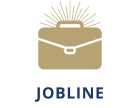

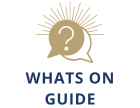



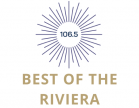


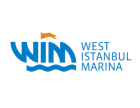







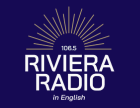
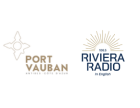








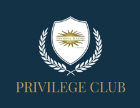
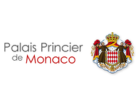


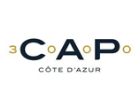



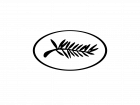
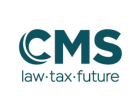











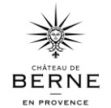


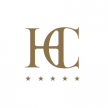


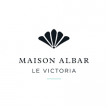









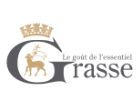







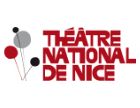





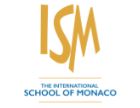
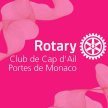






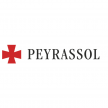

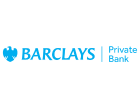



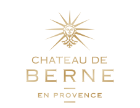

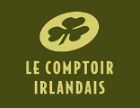



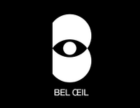



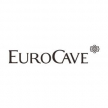






















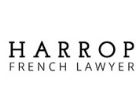






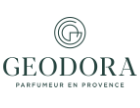
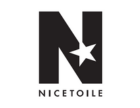






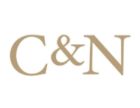




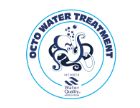
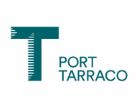











 Read More
Read More
